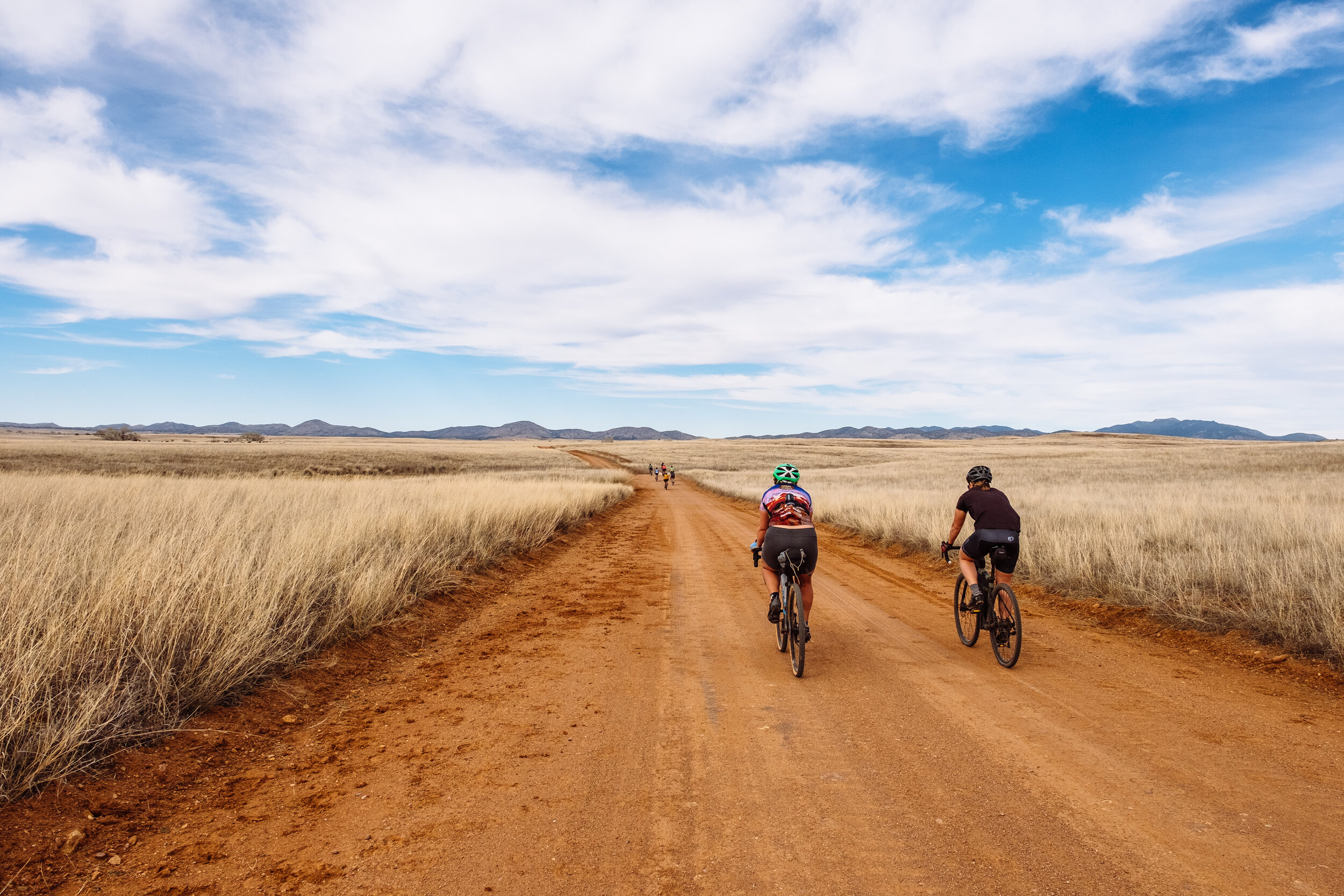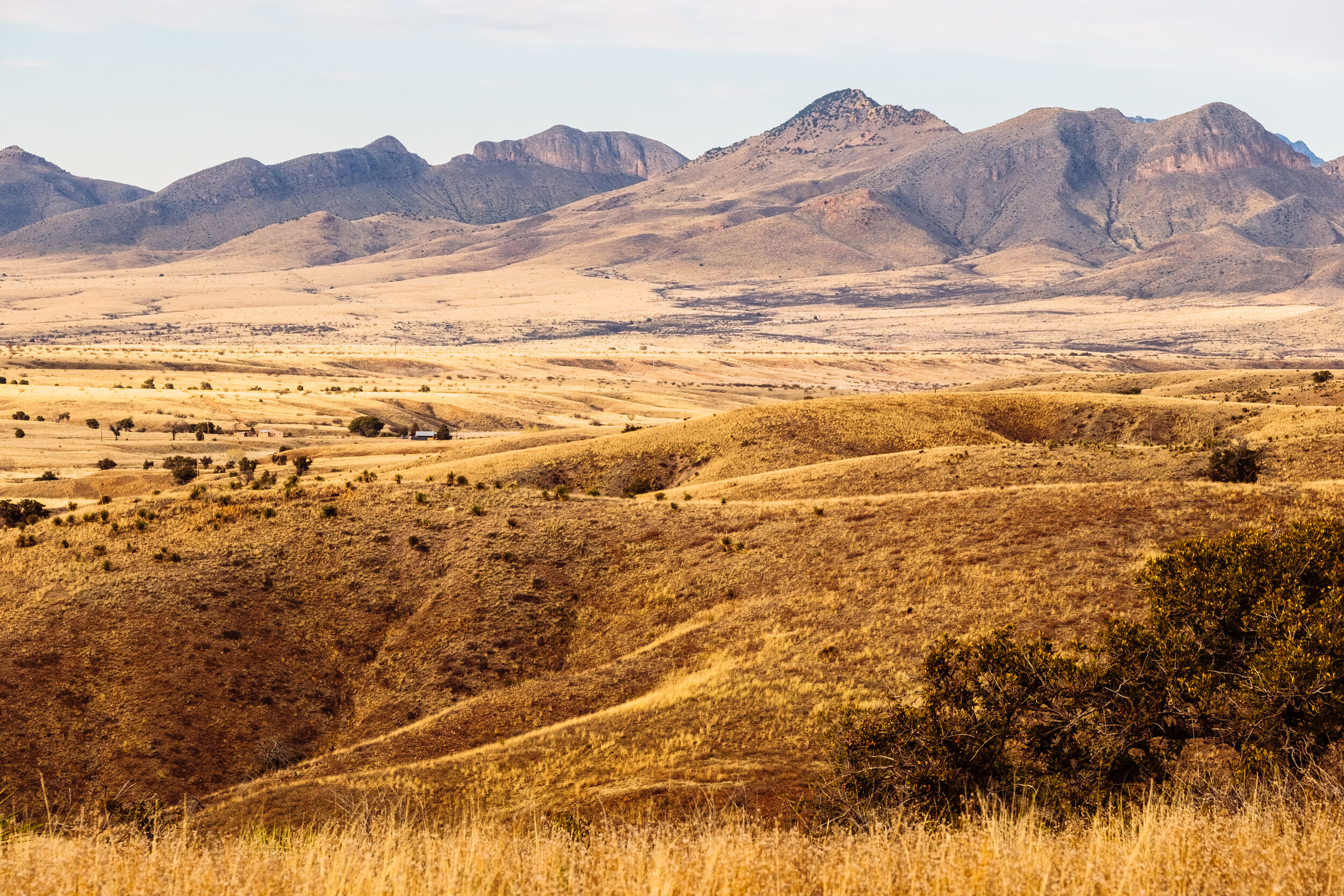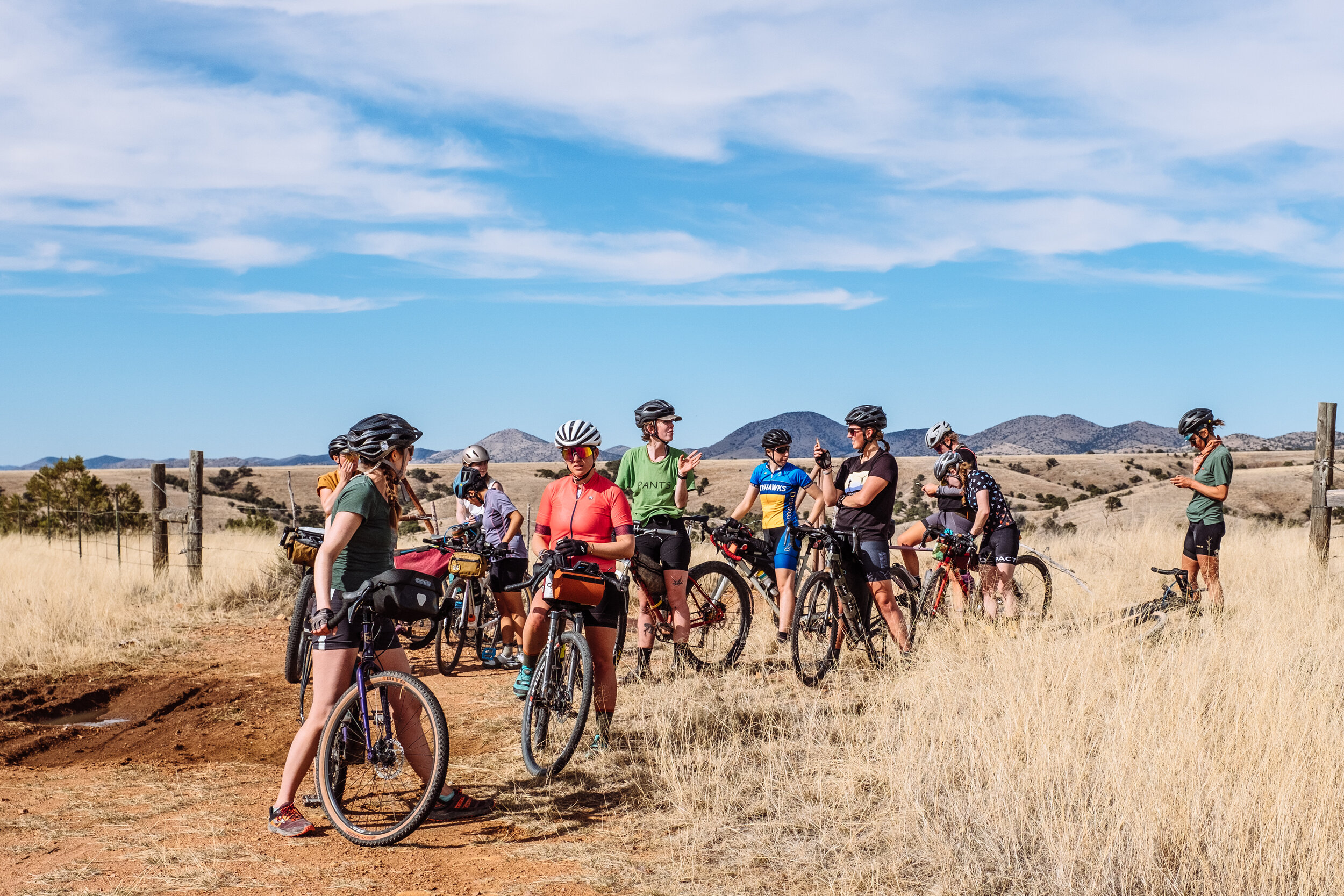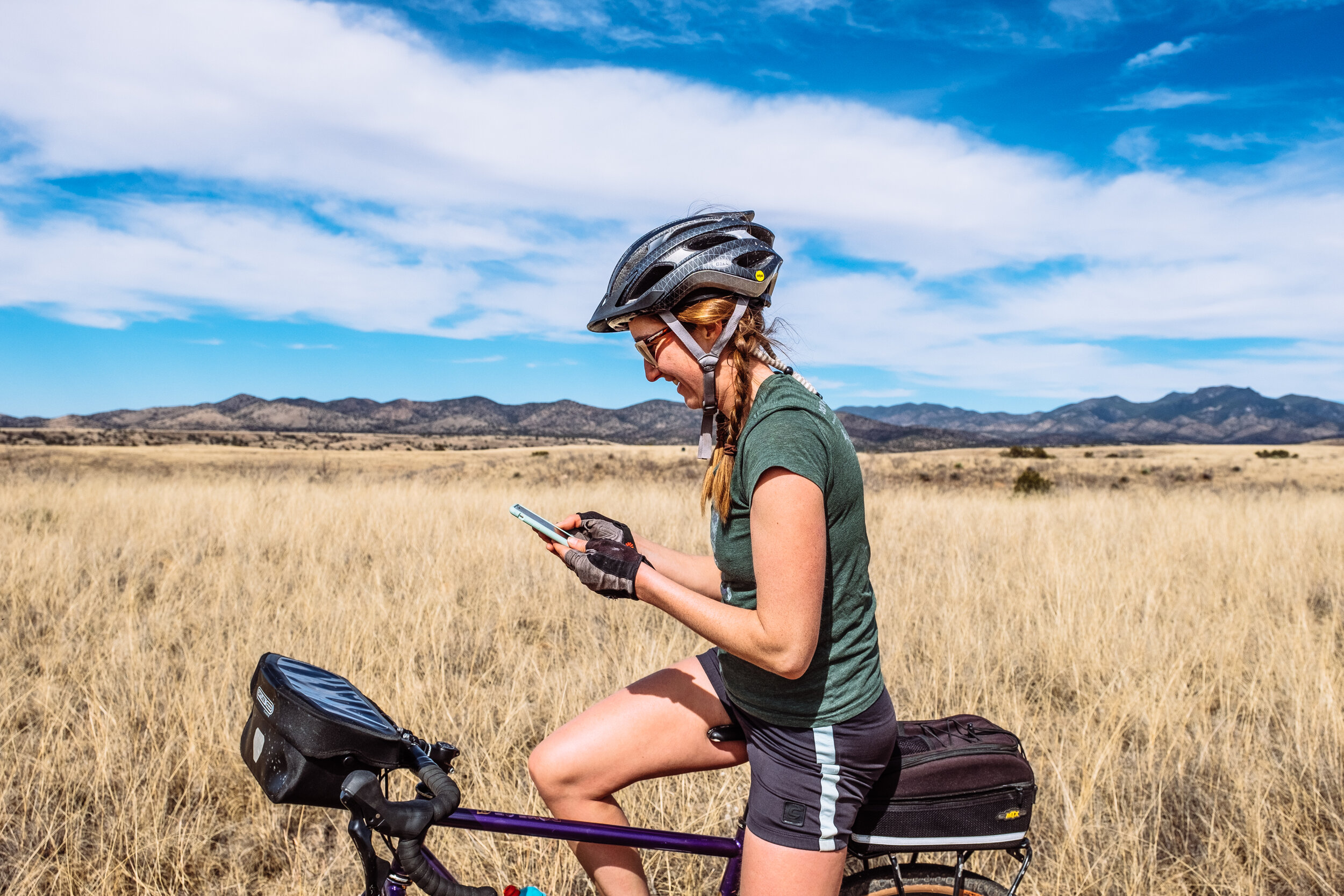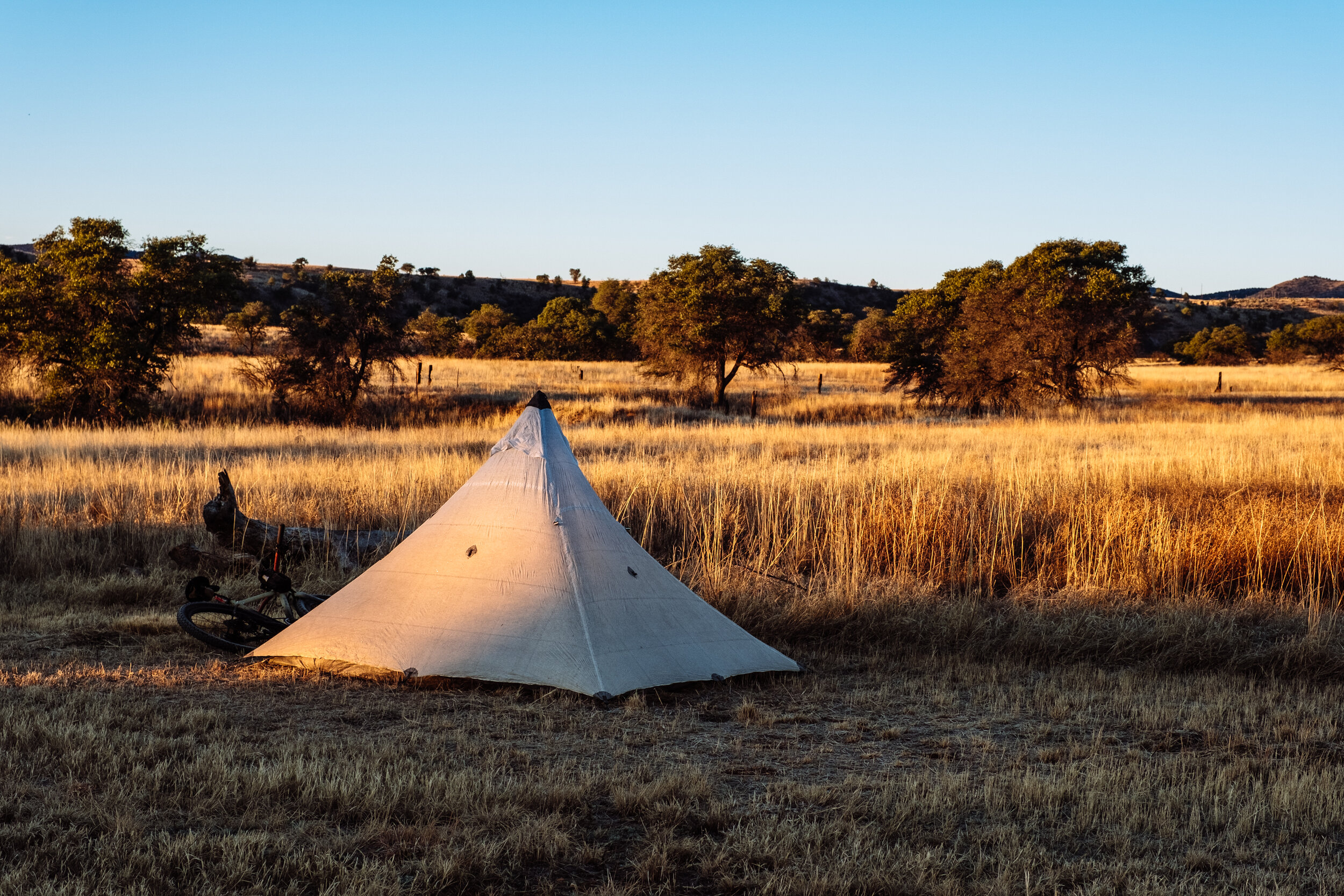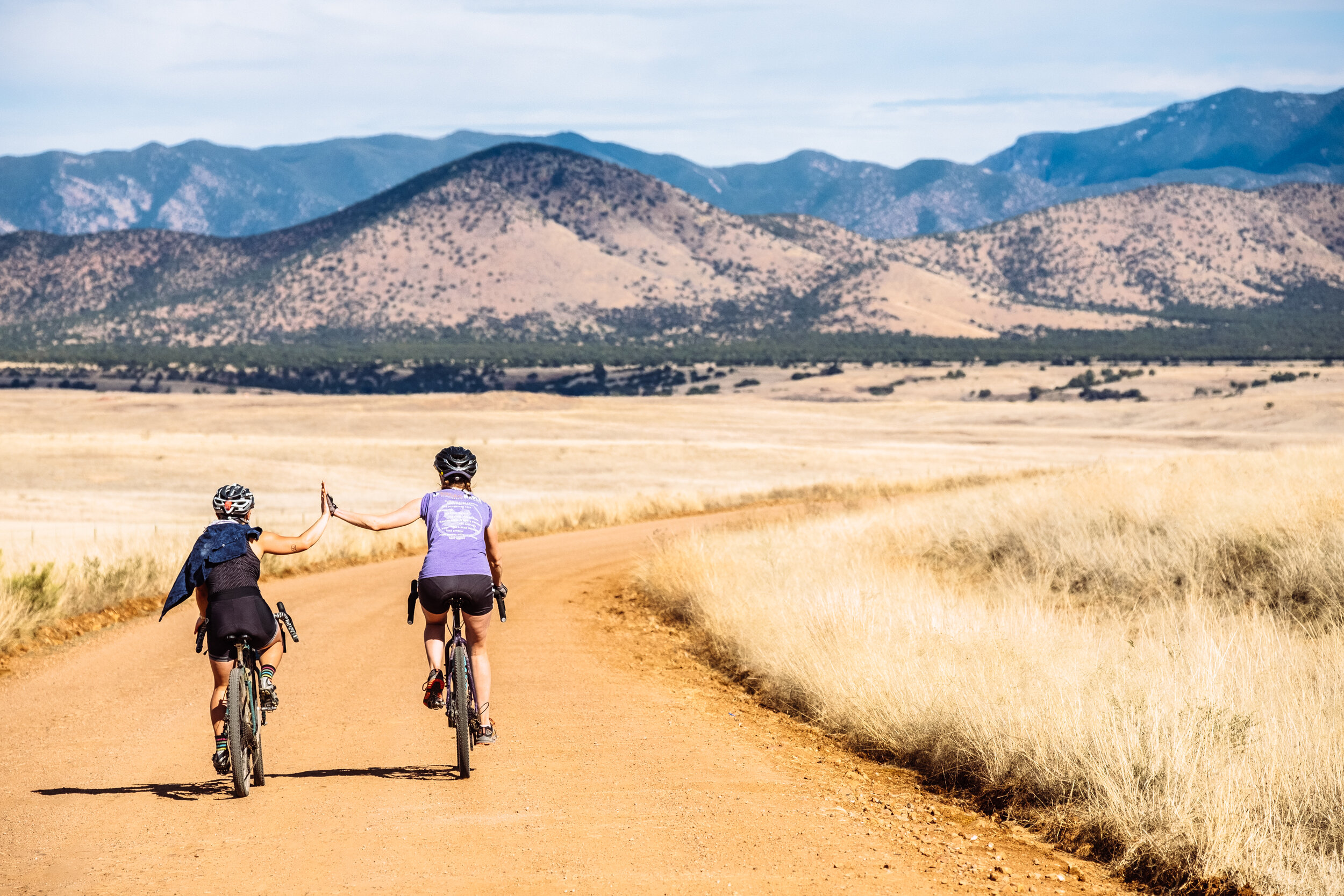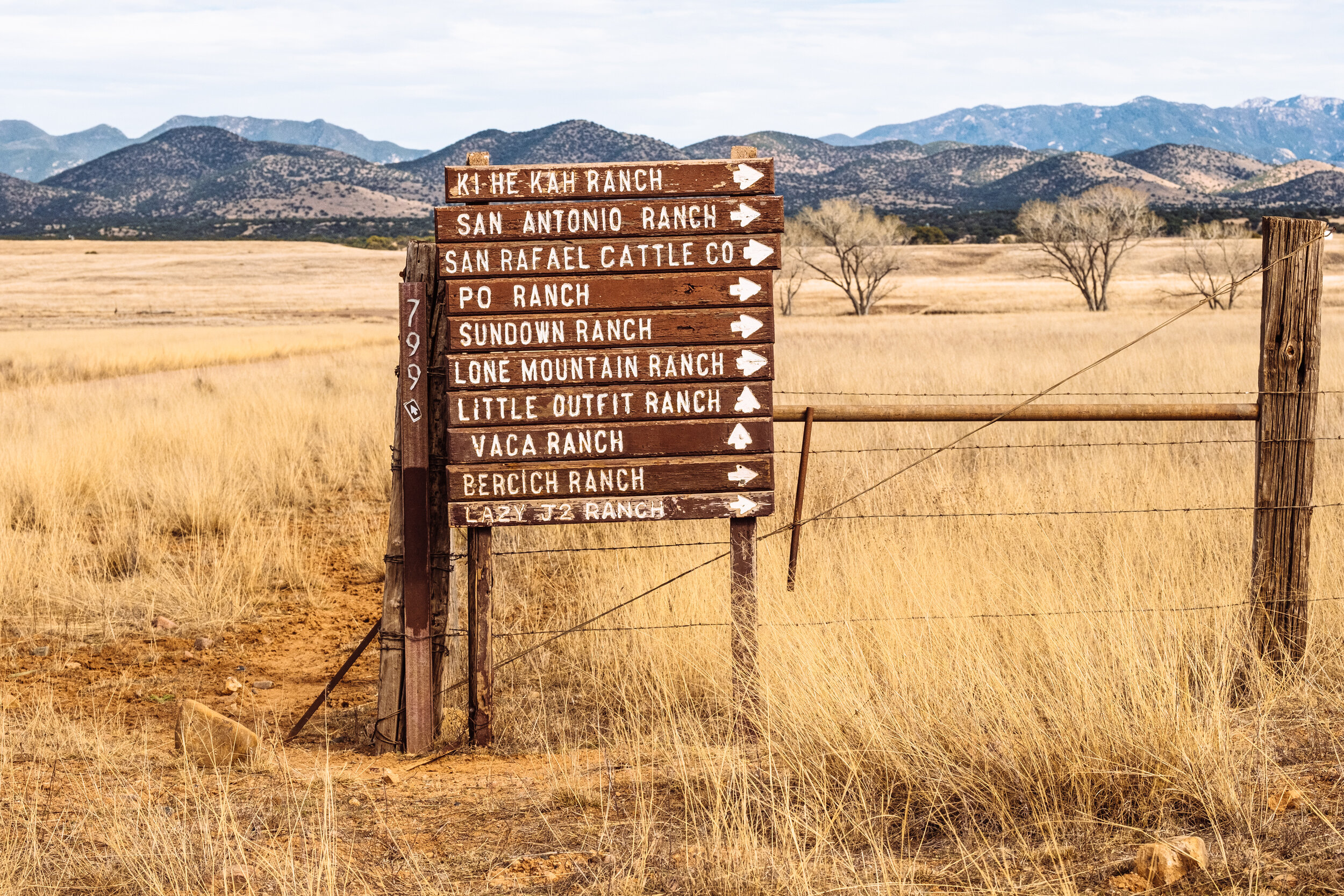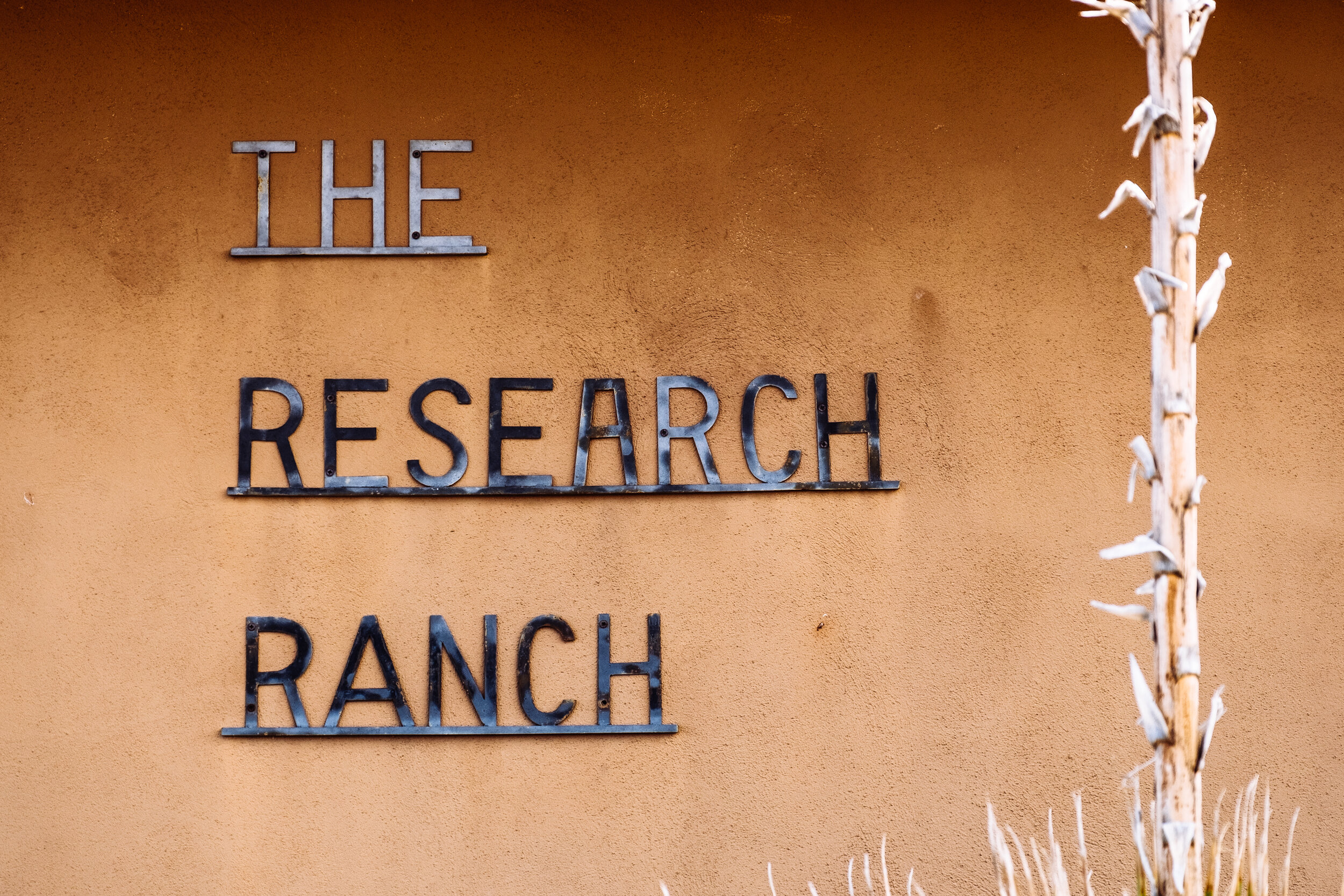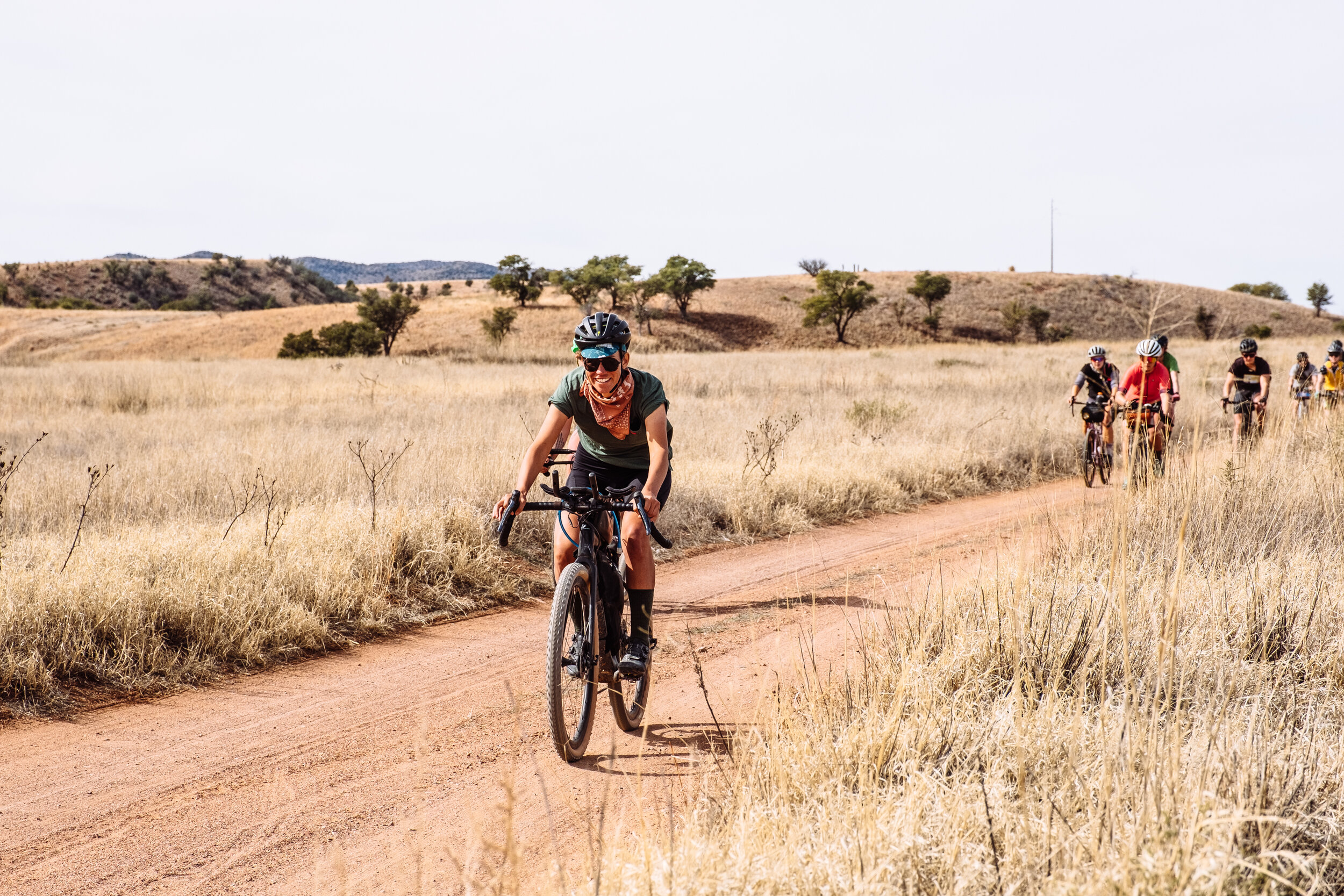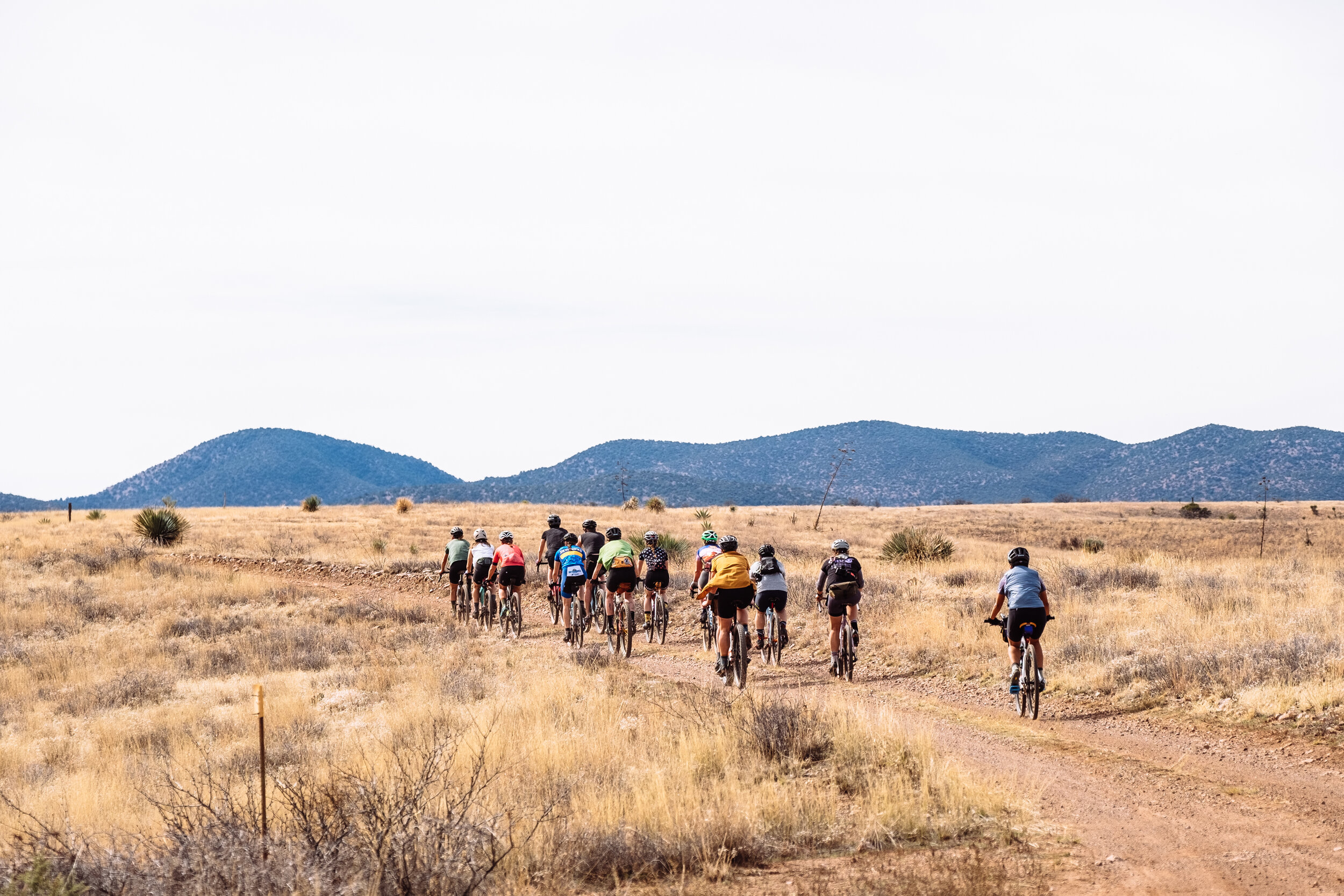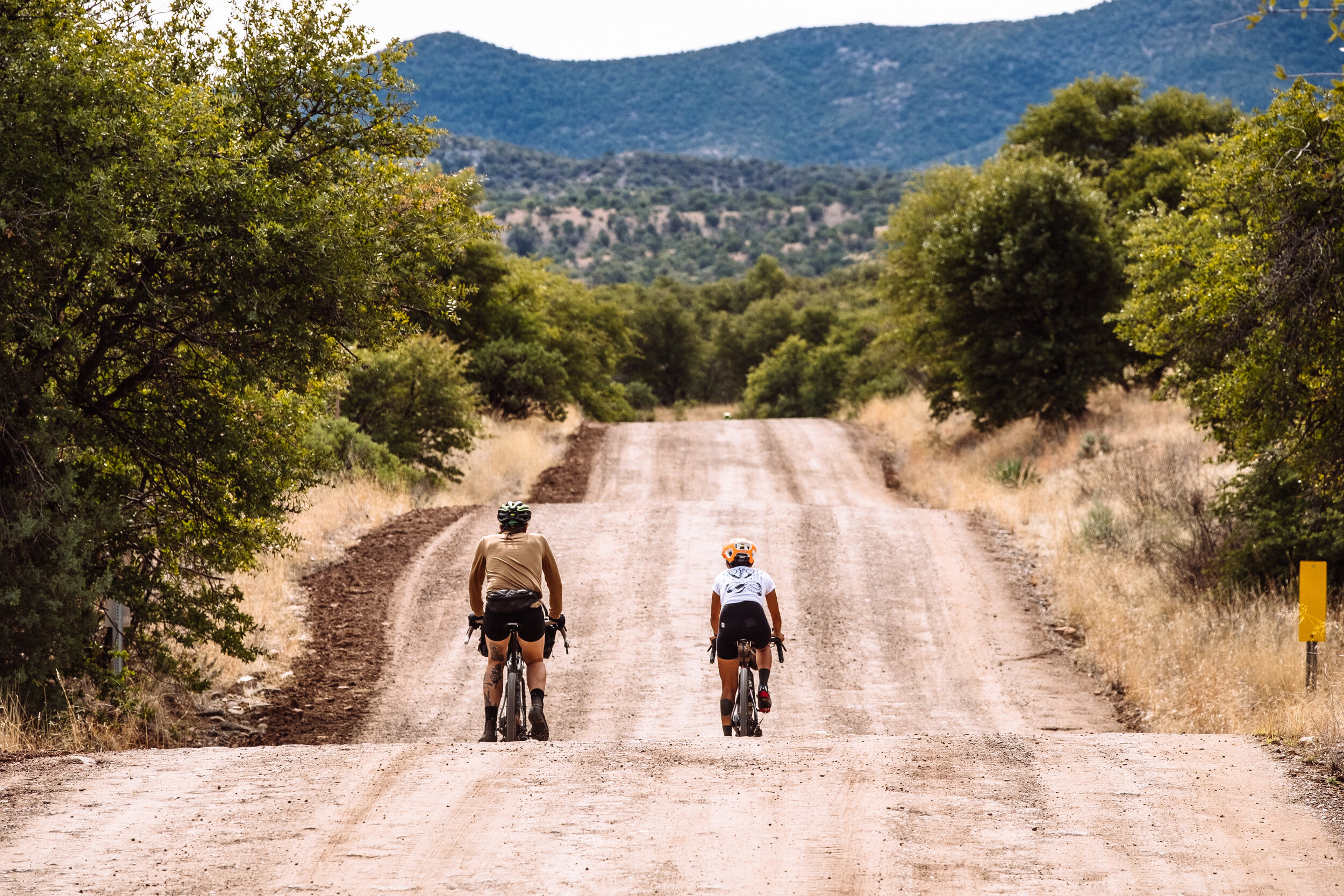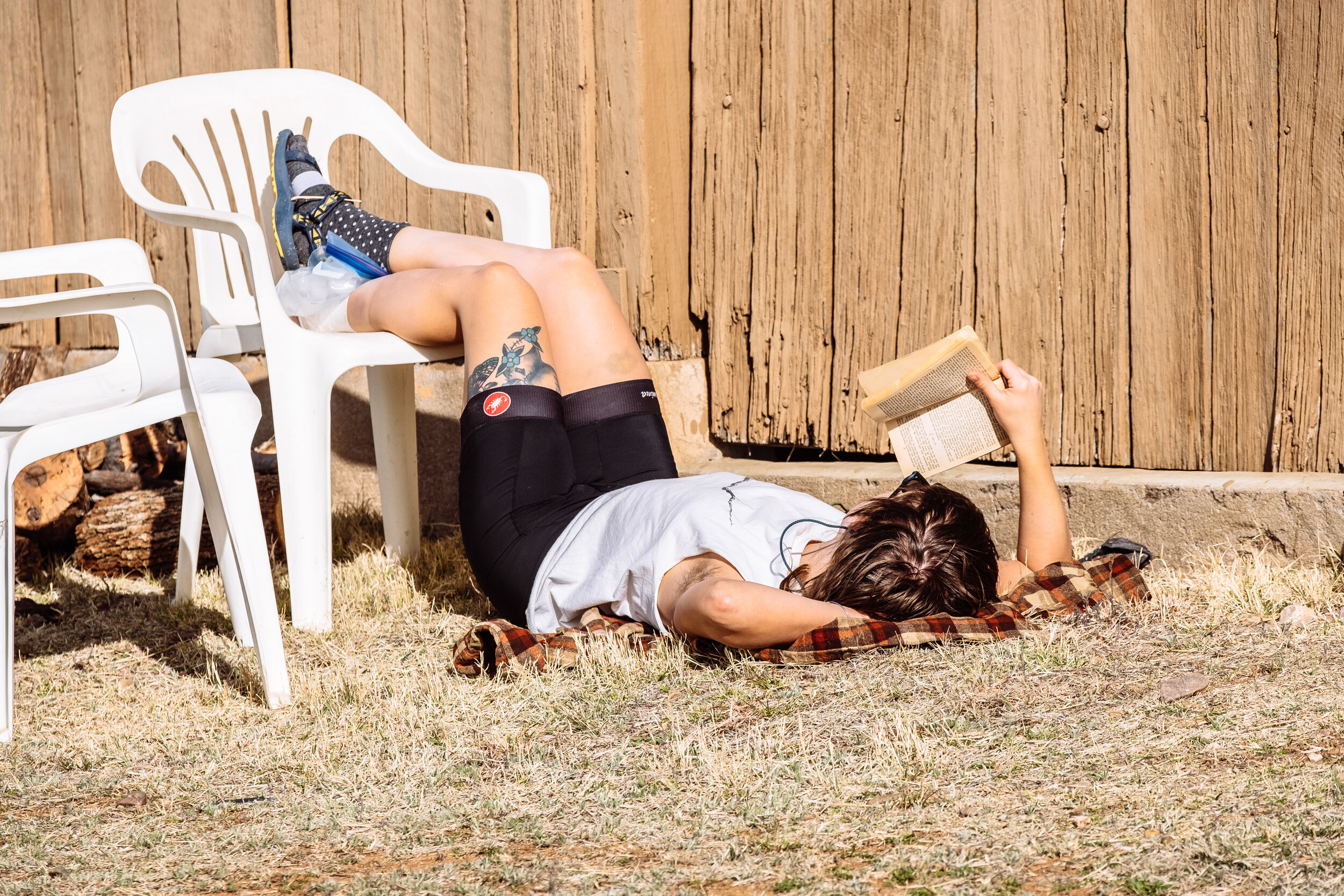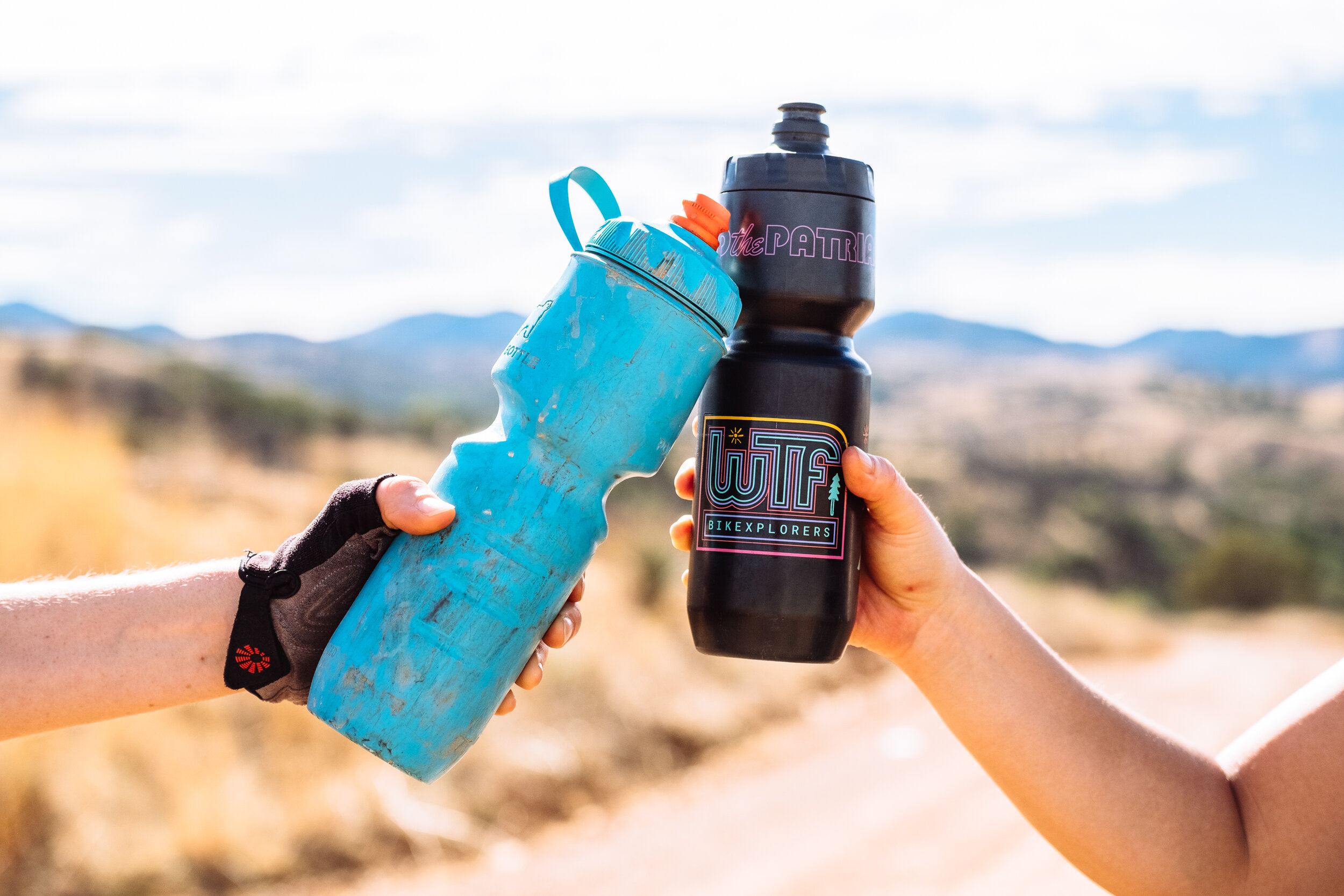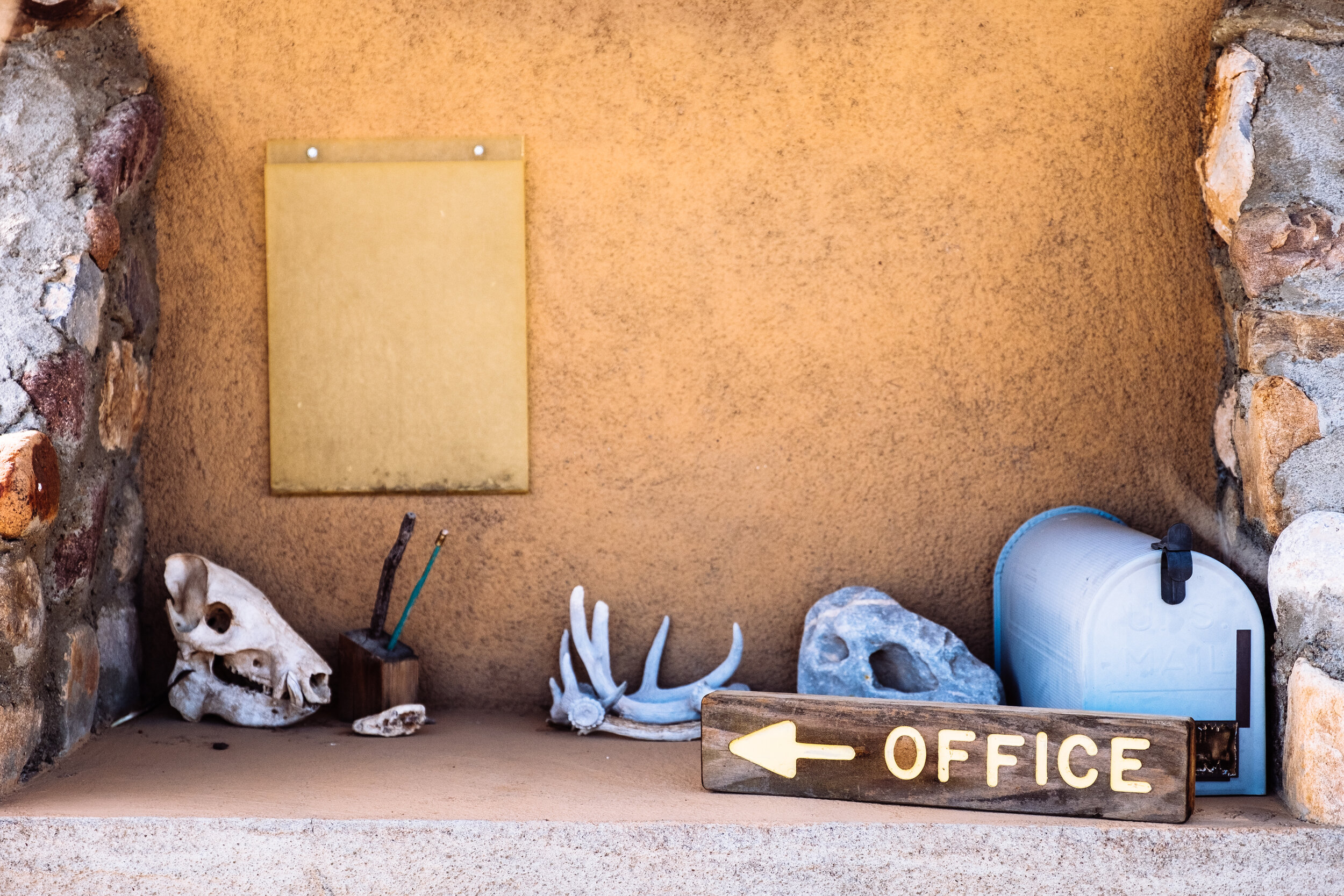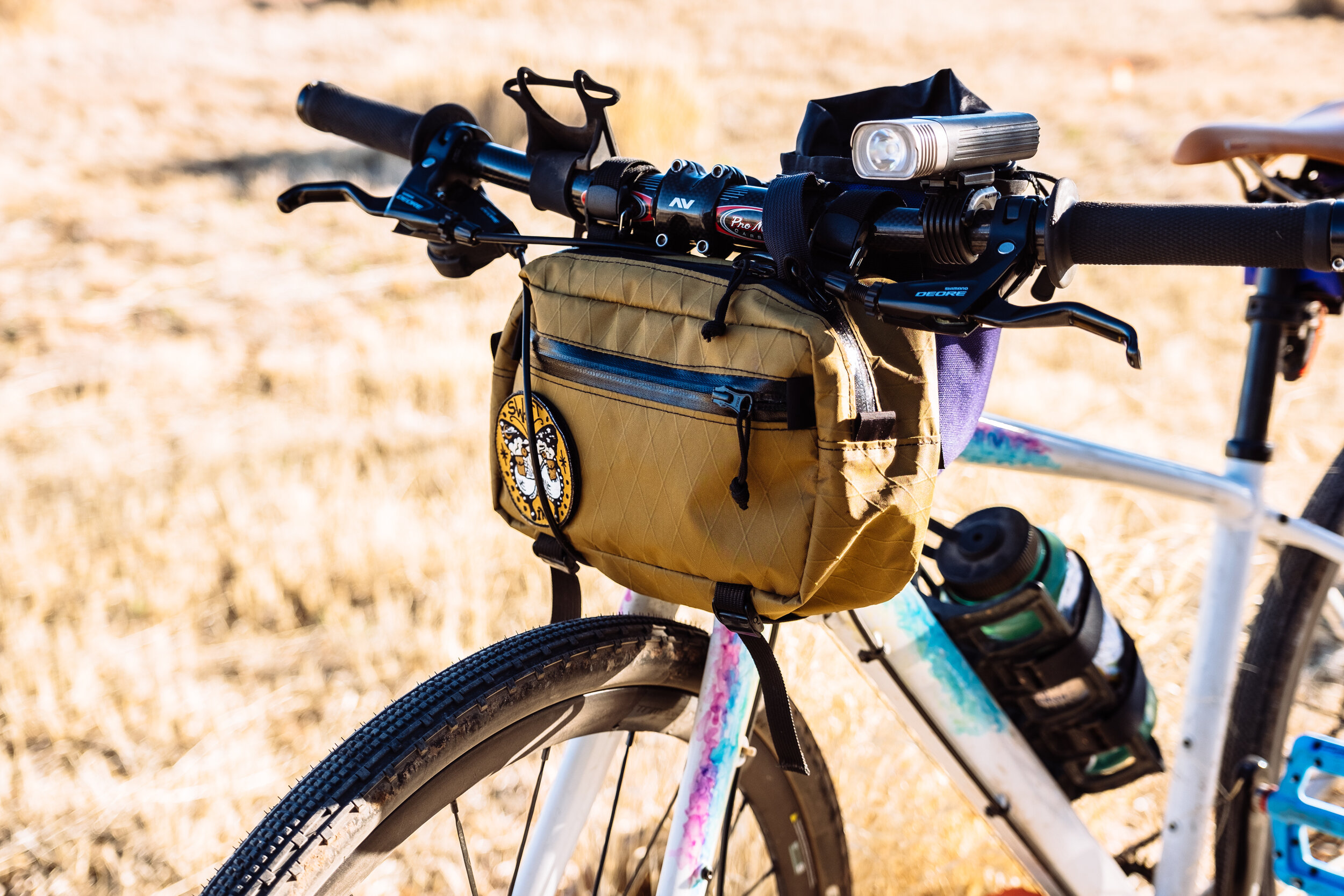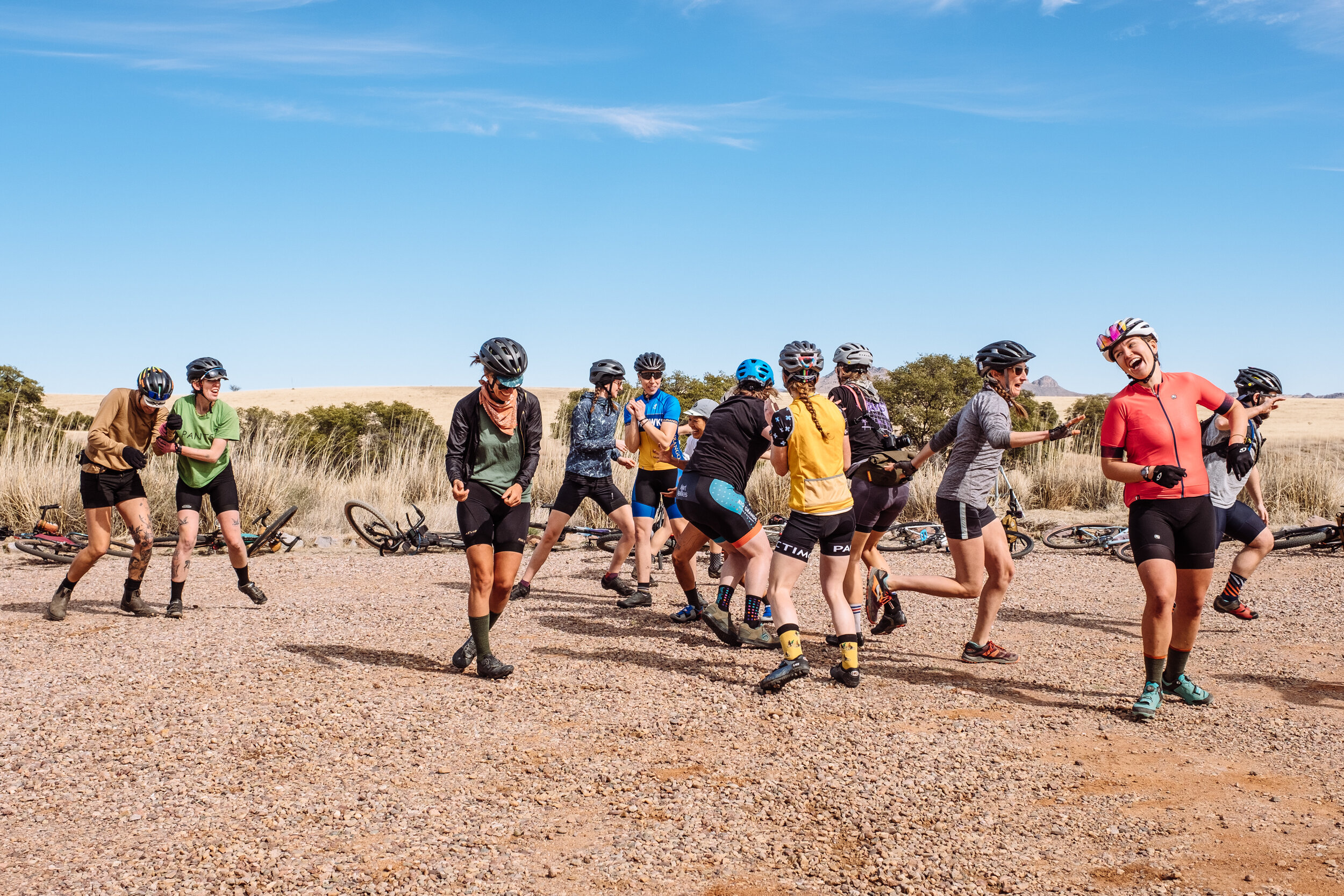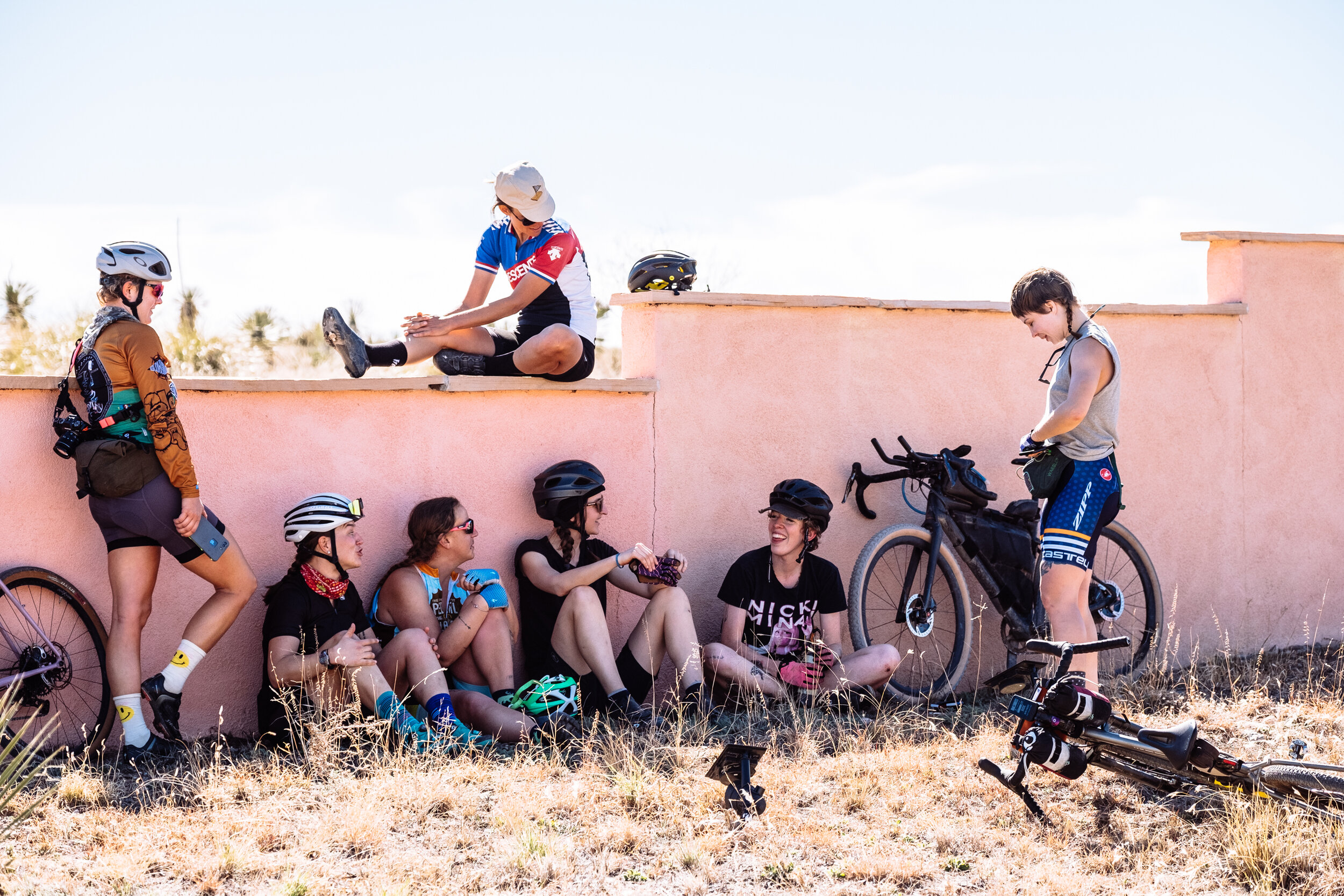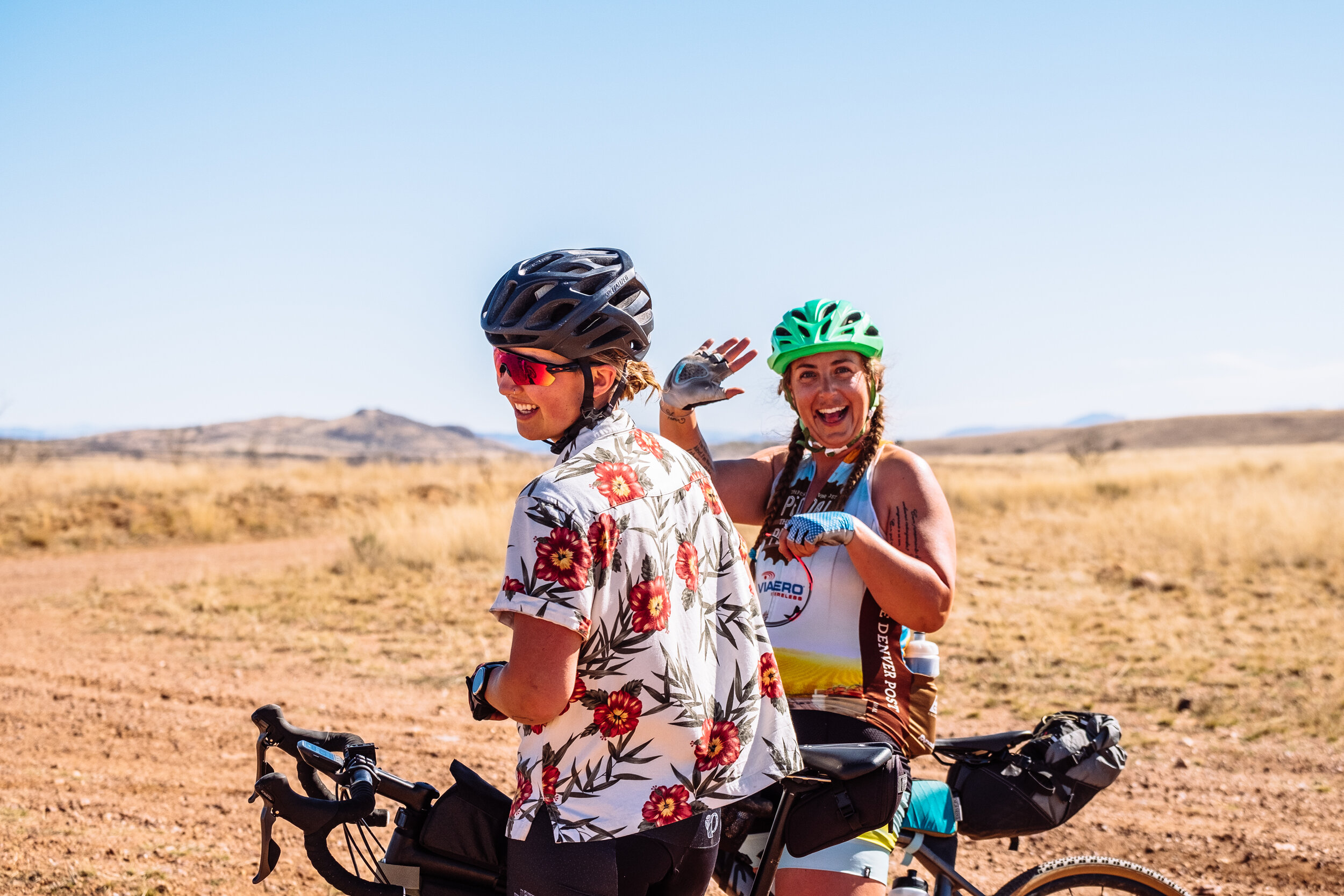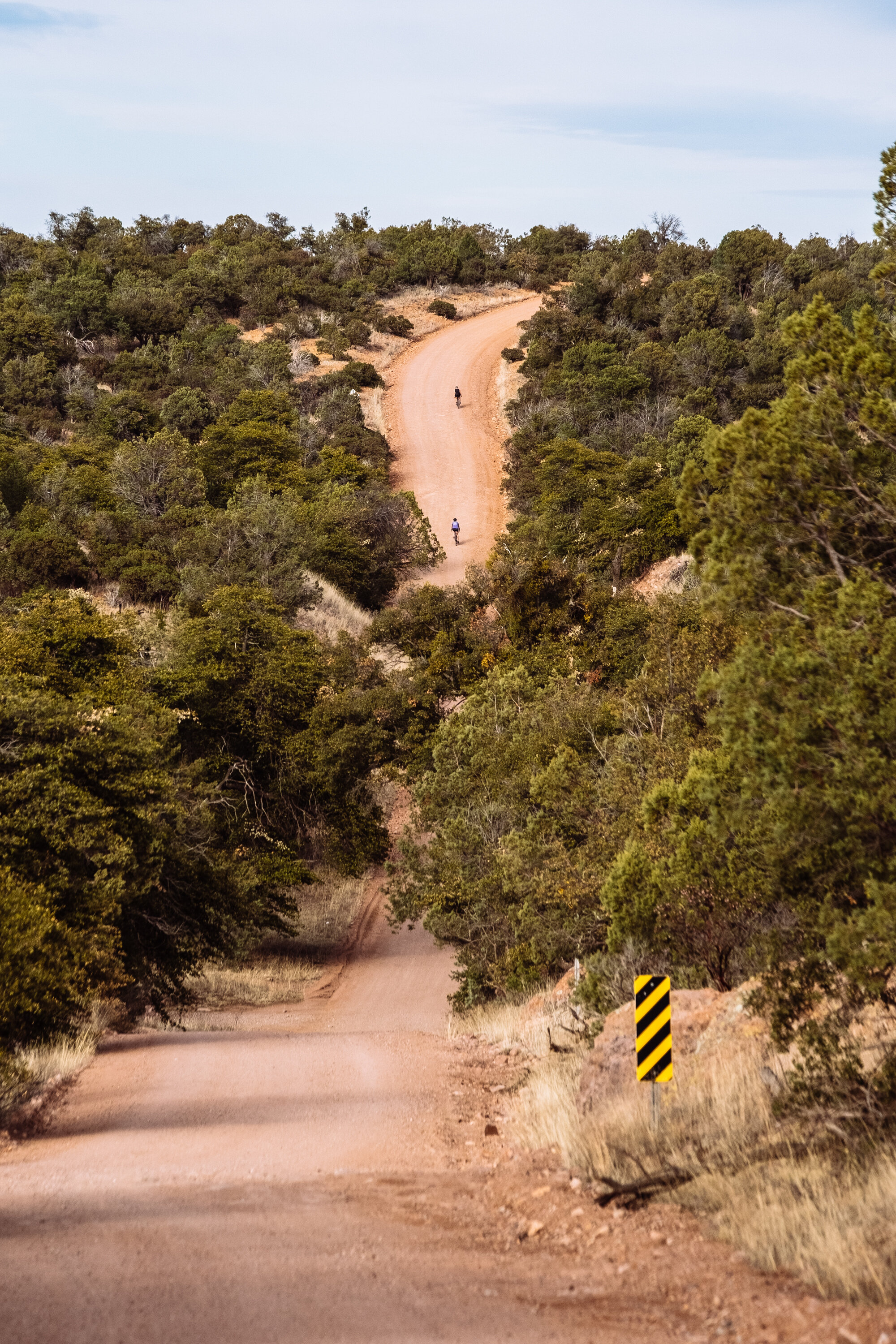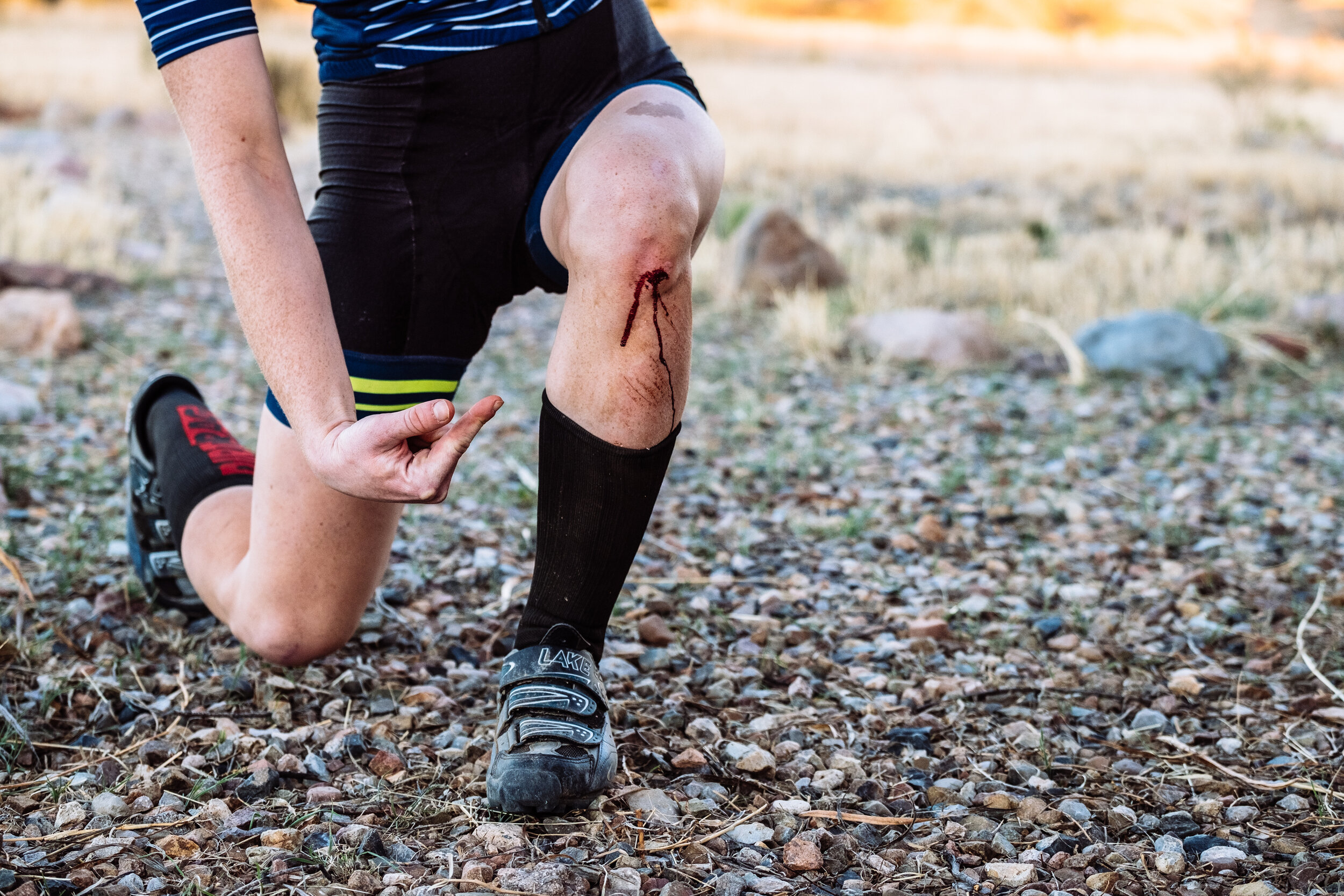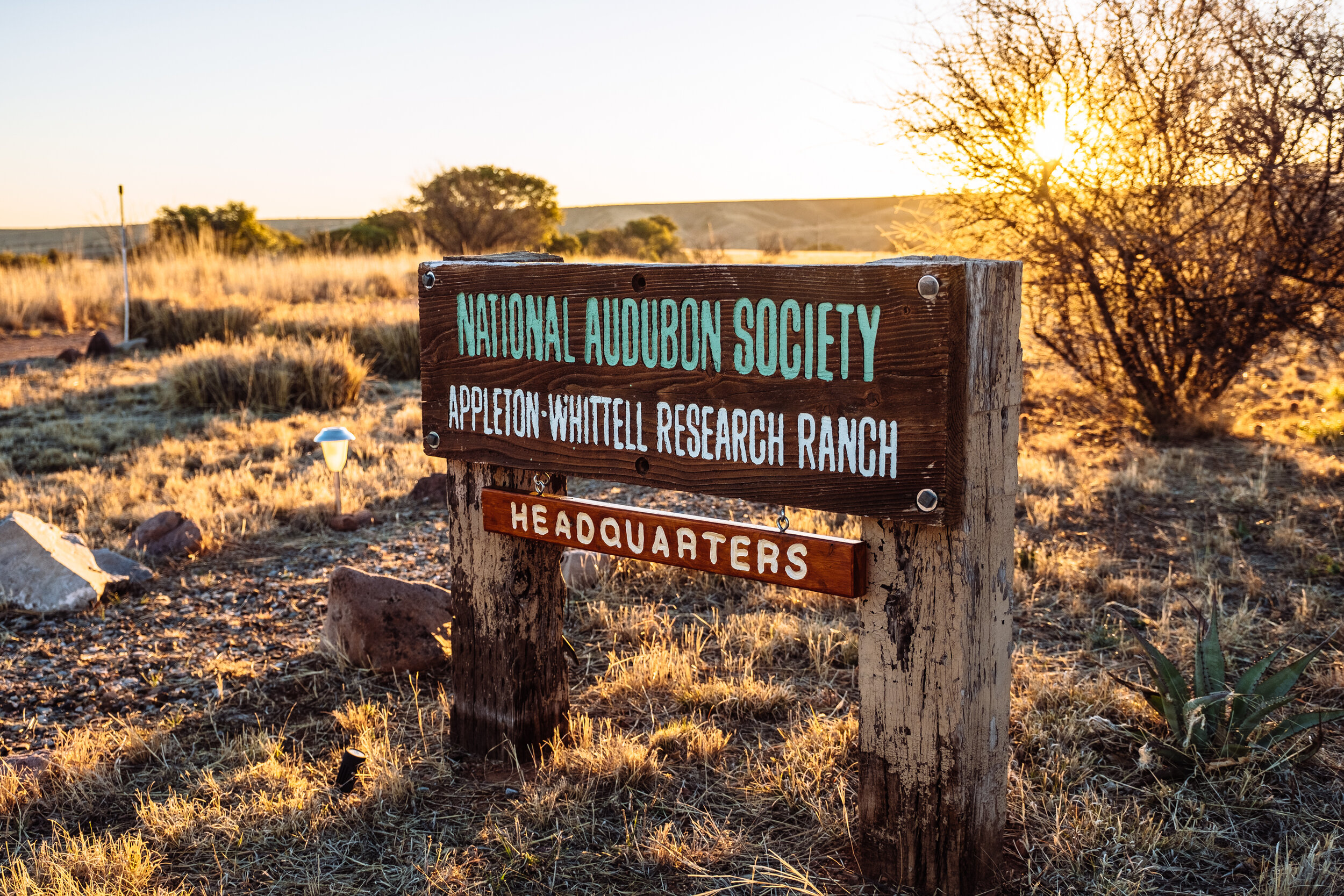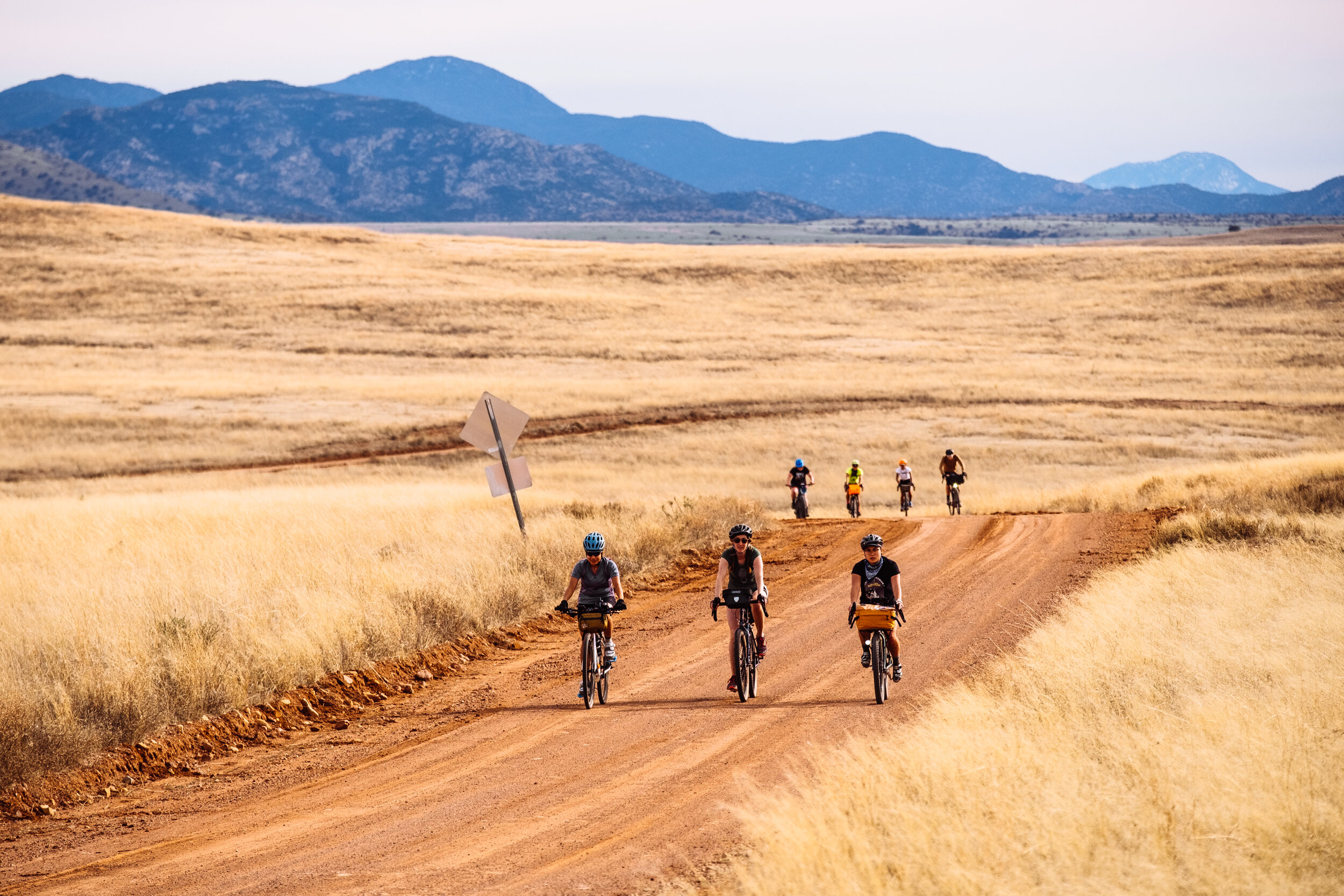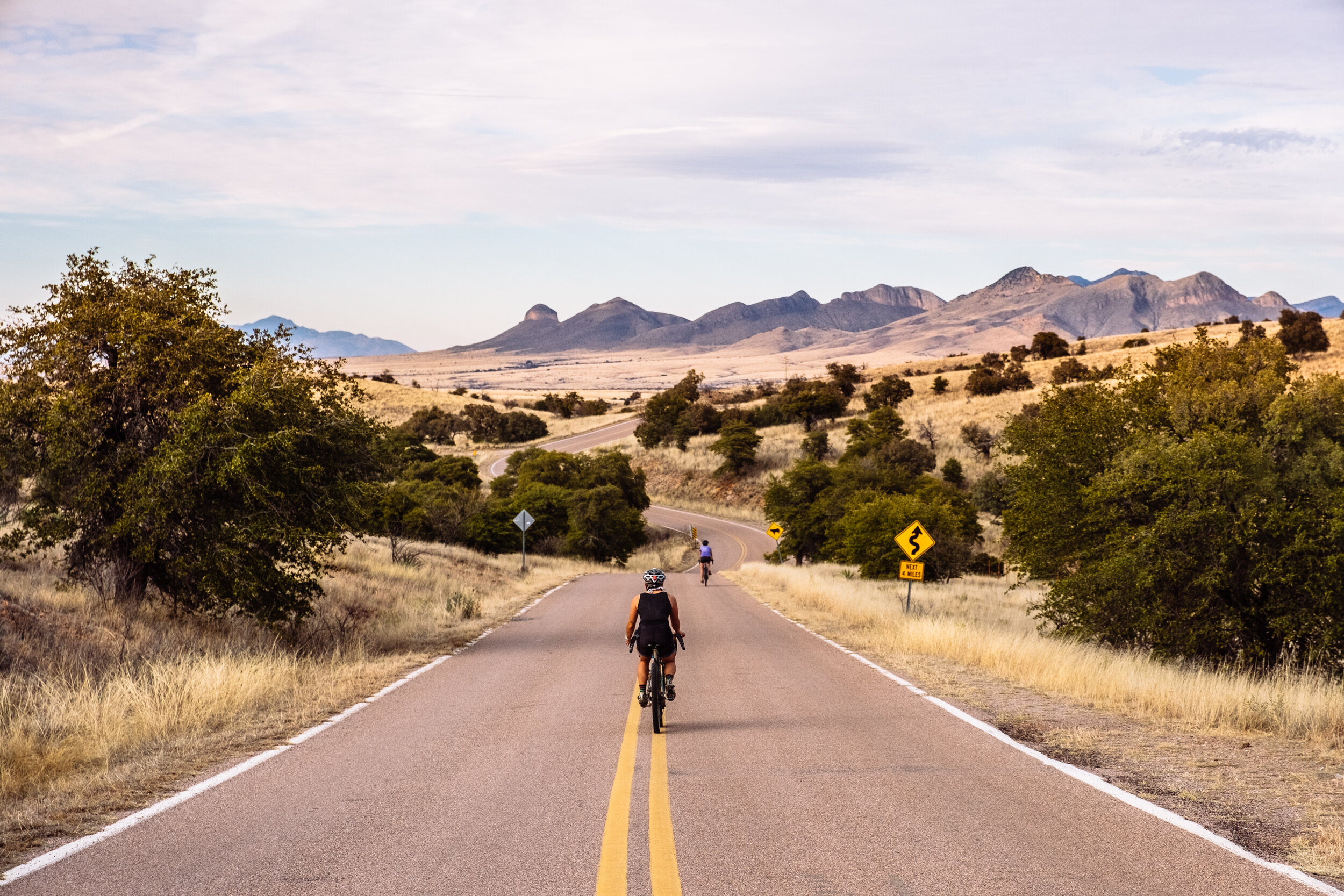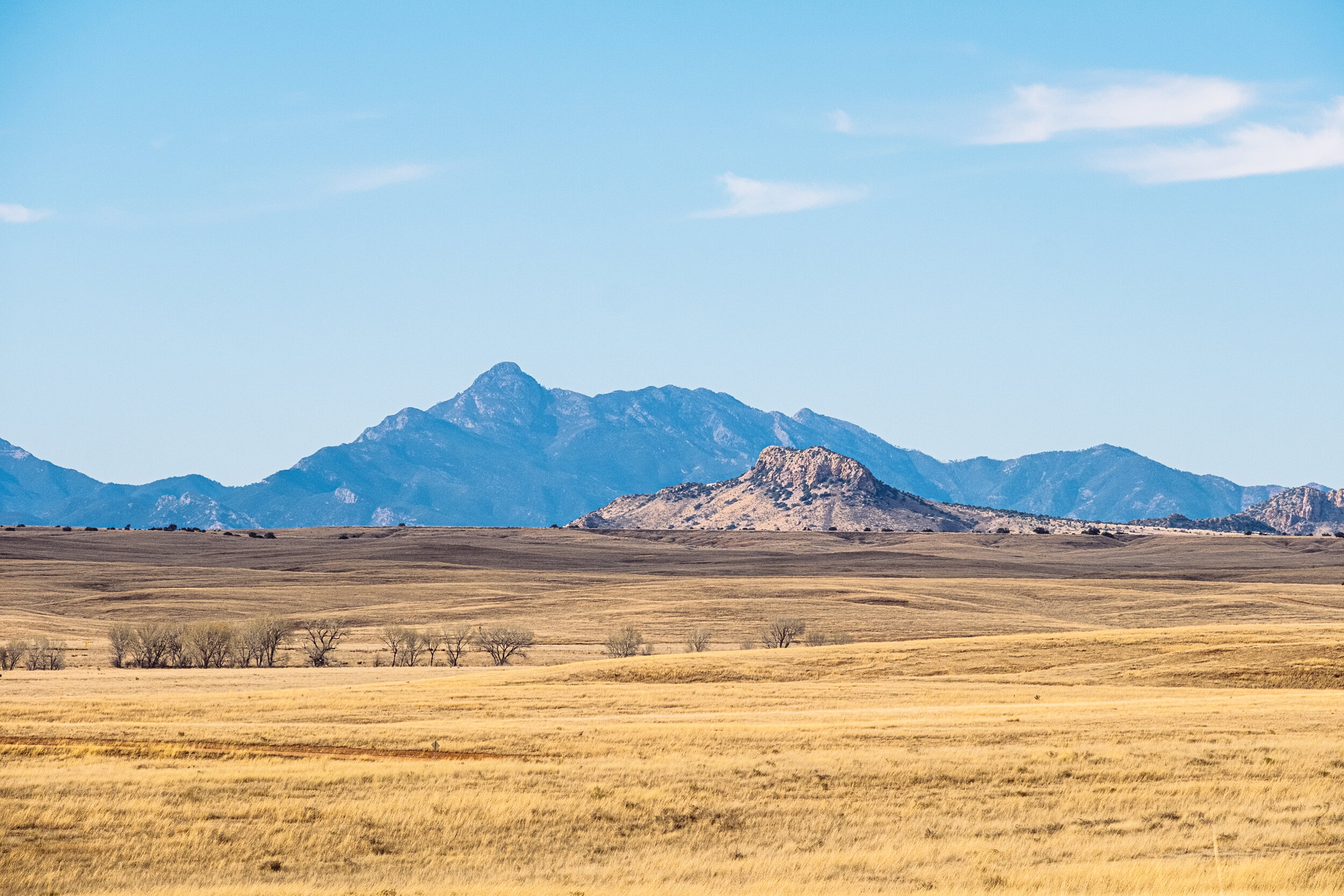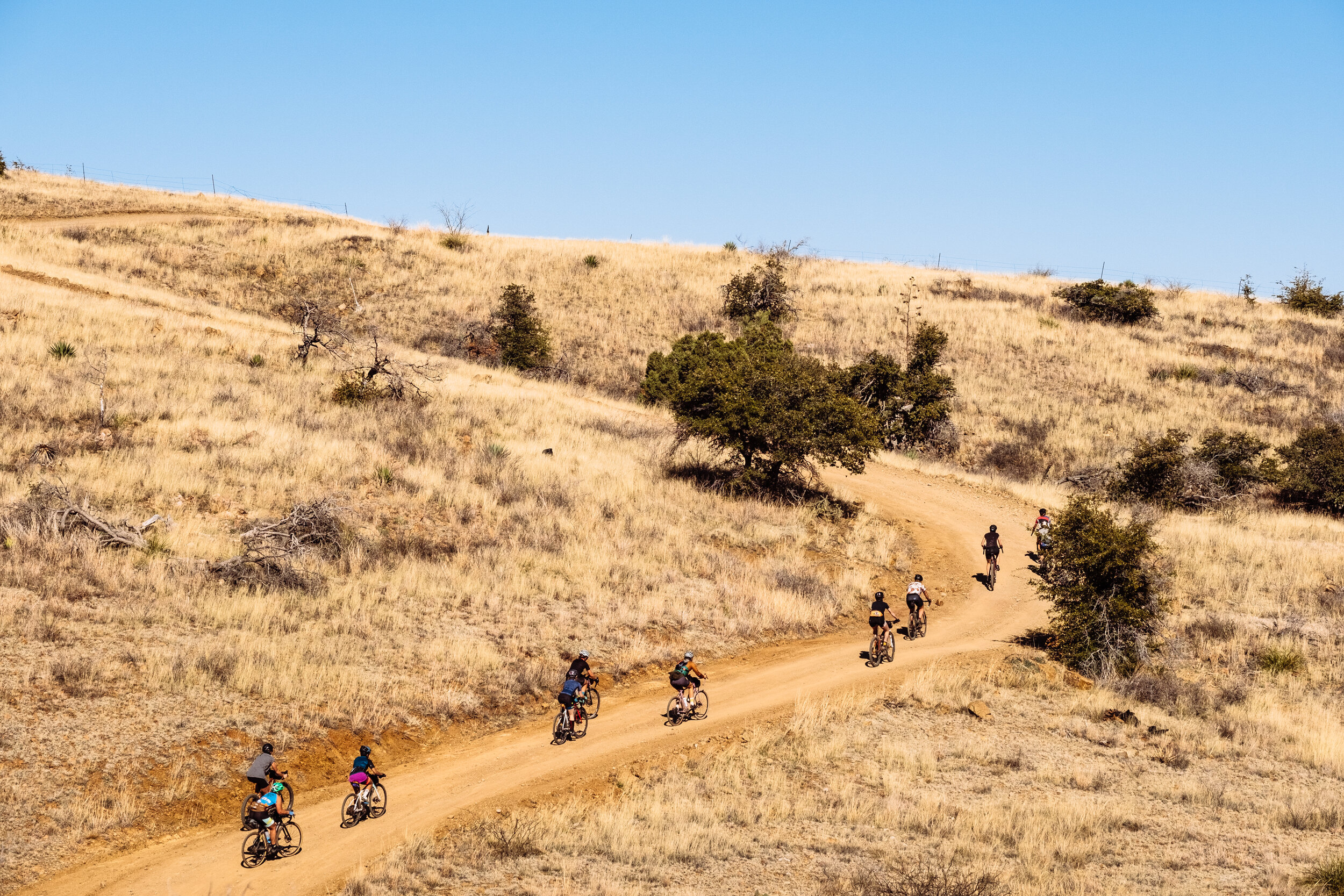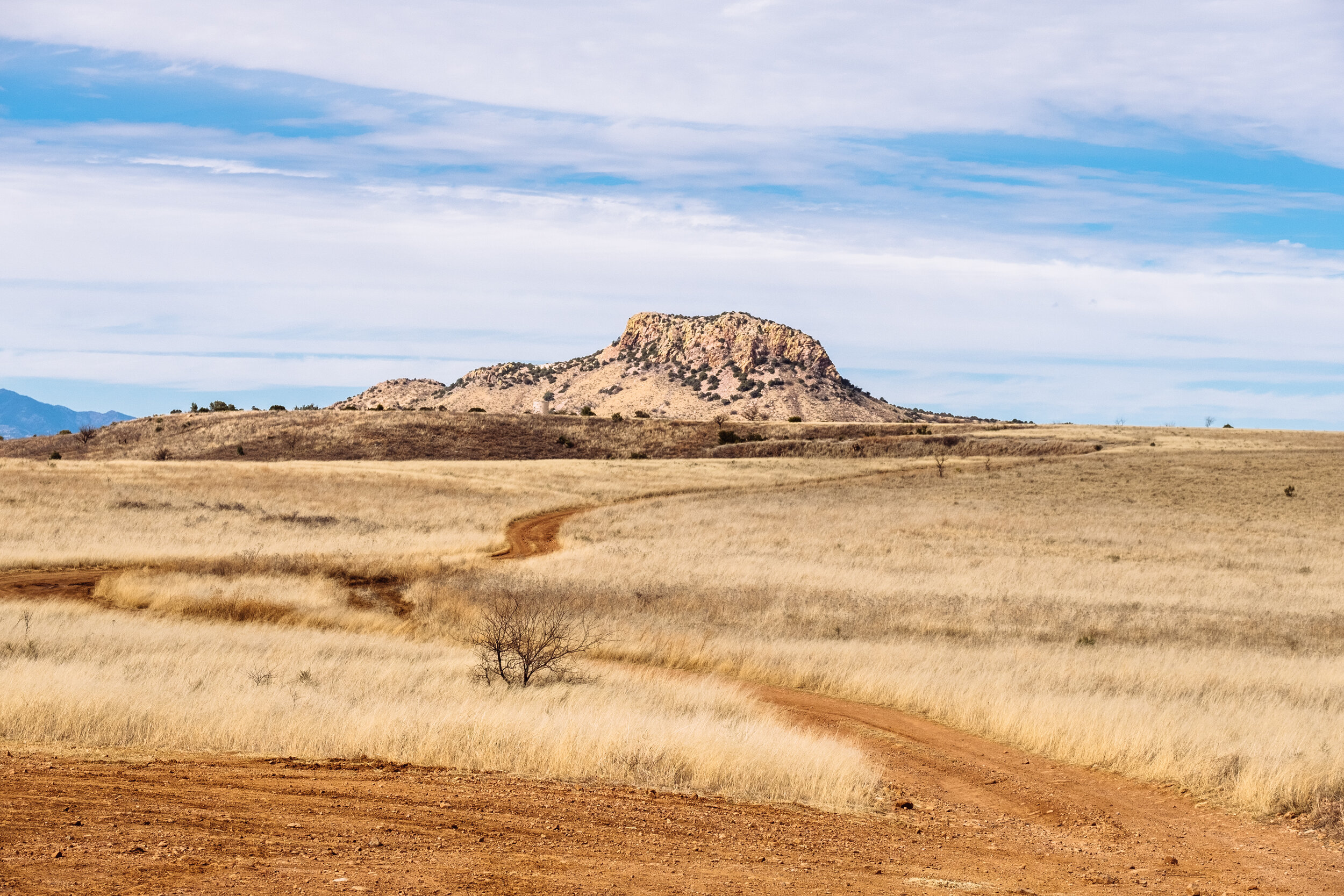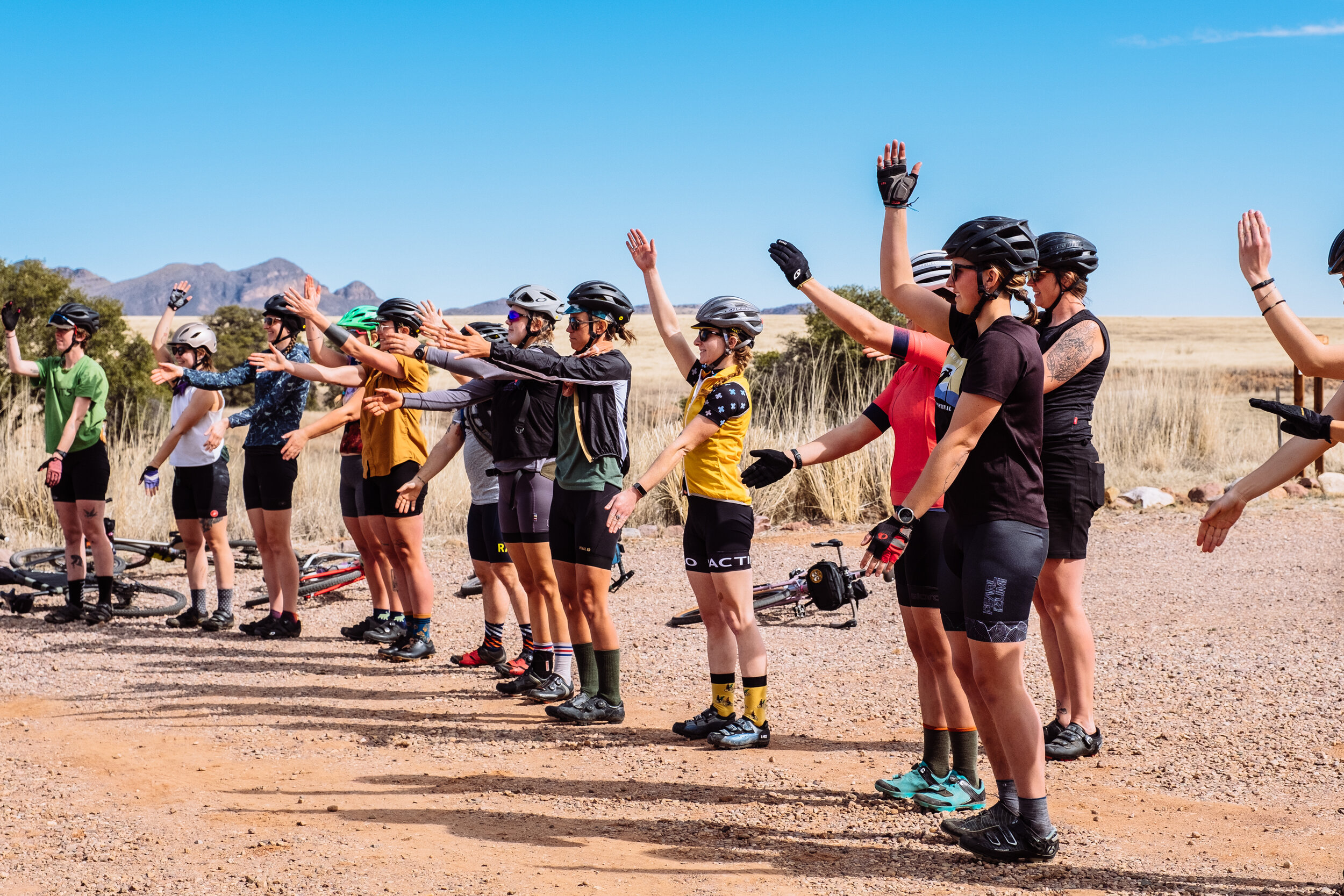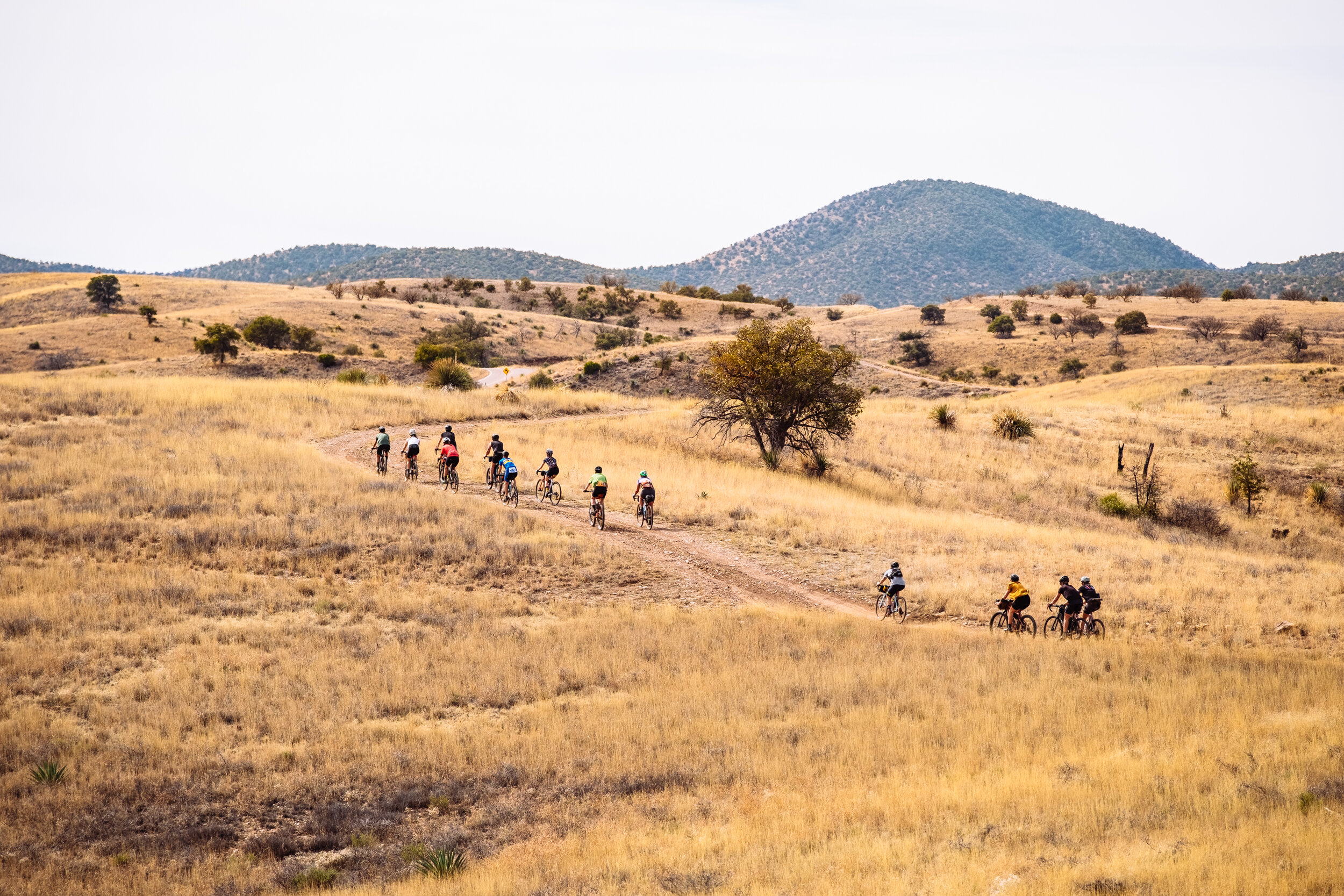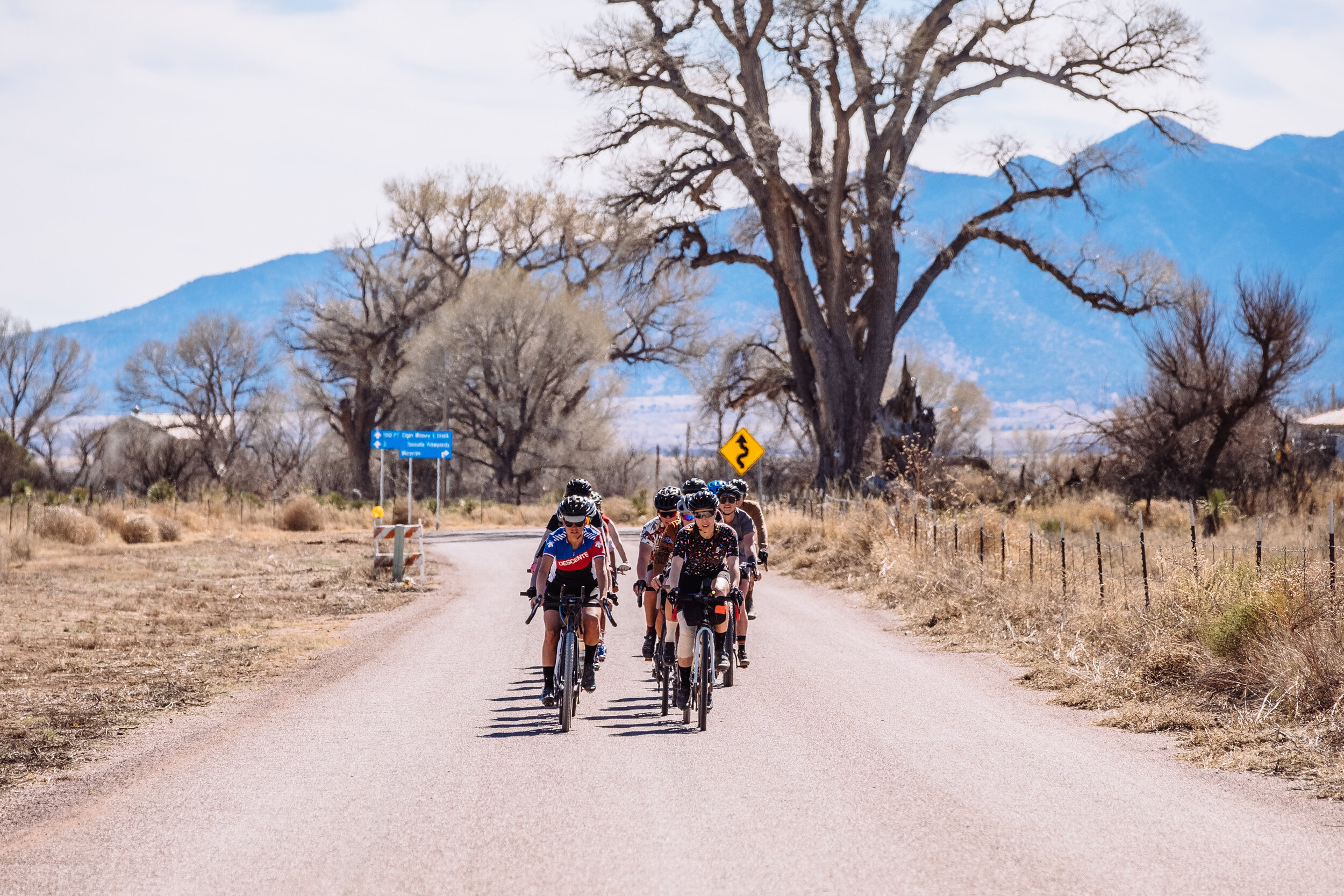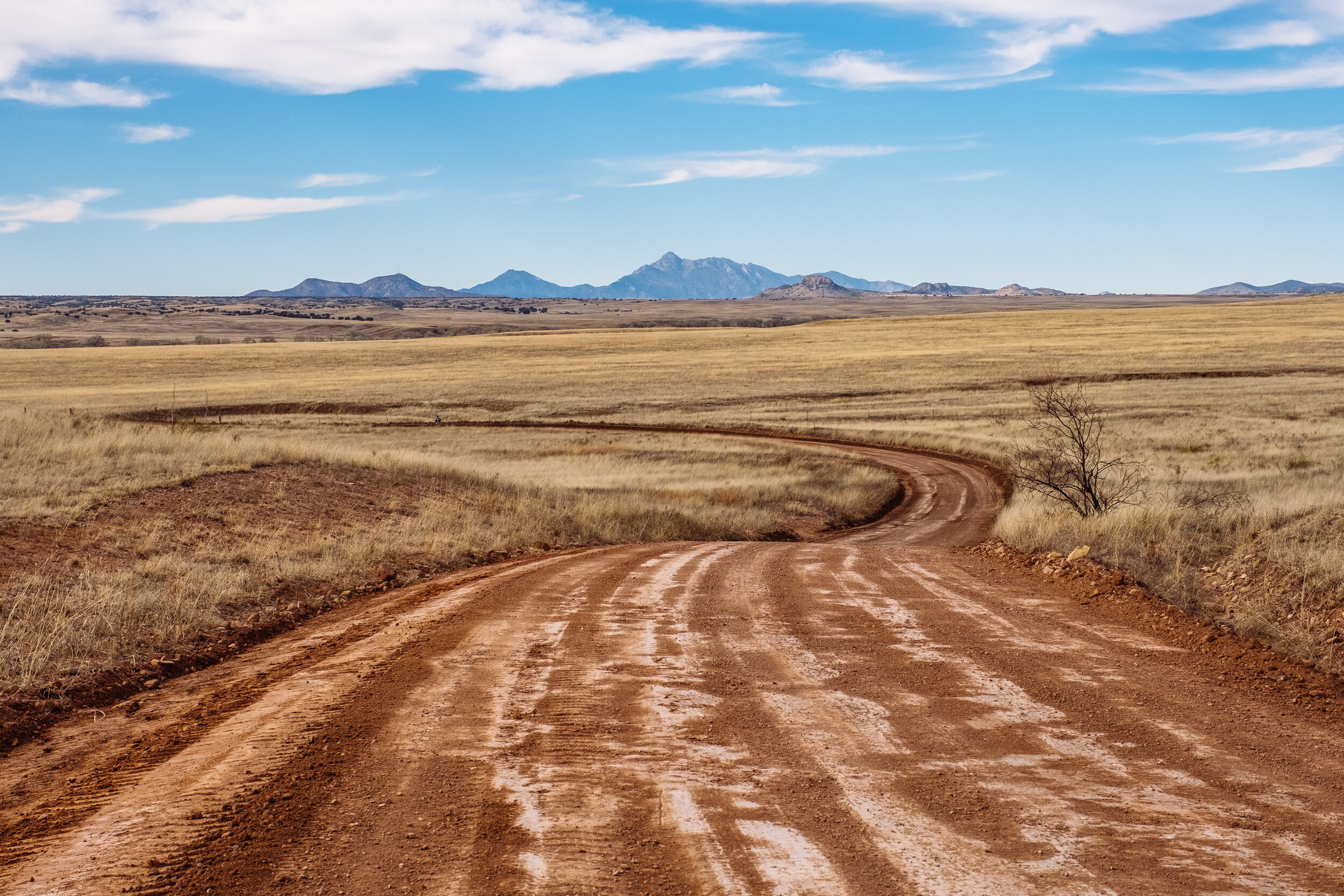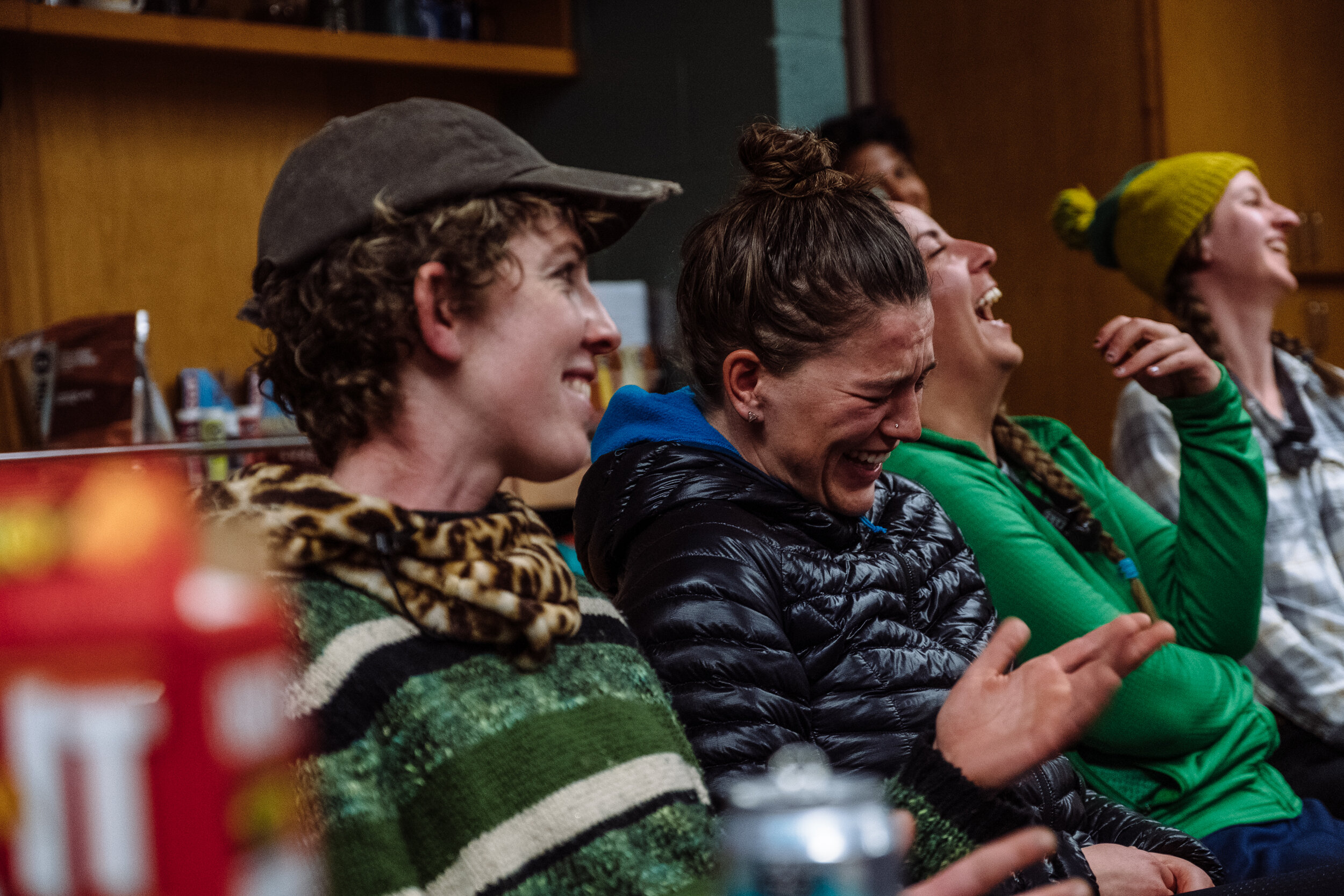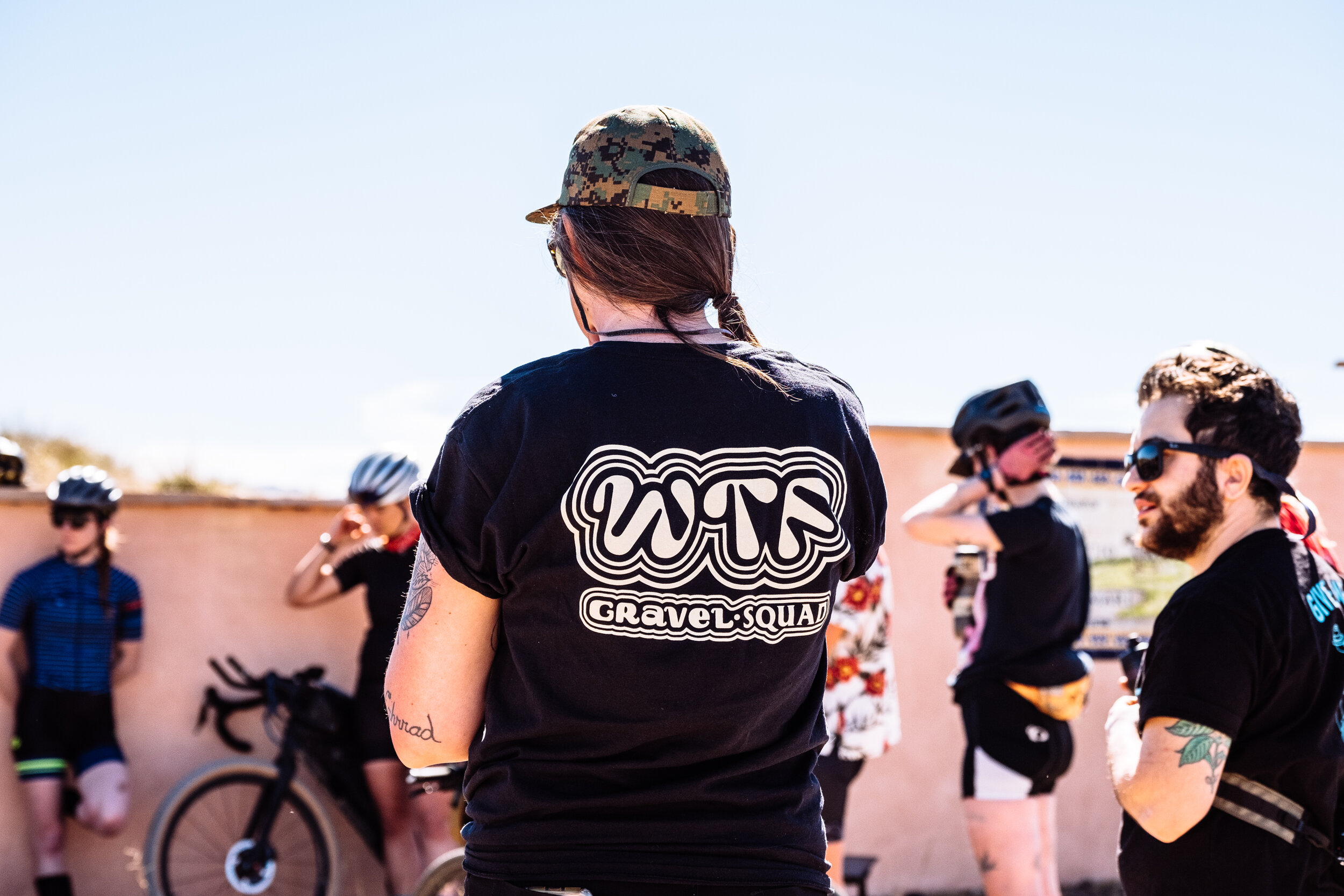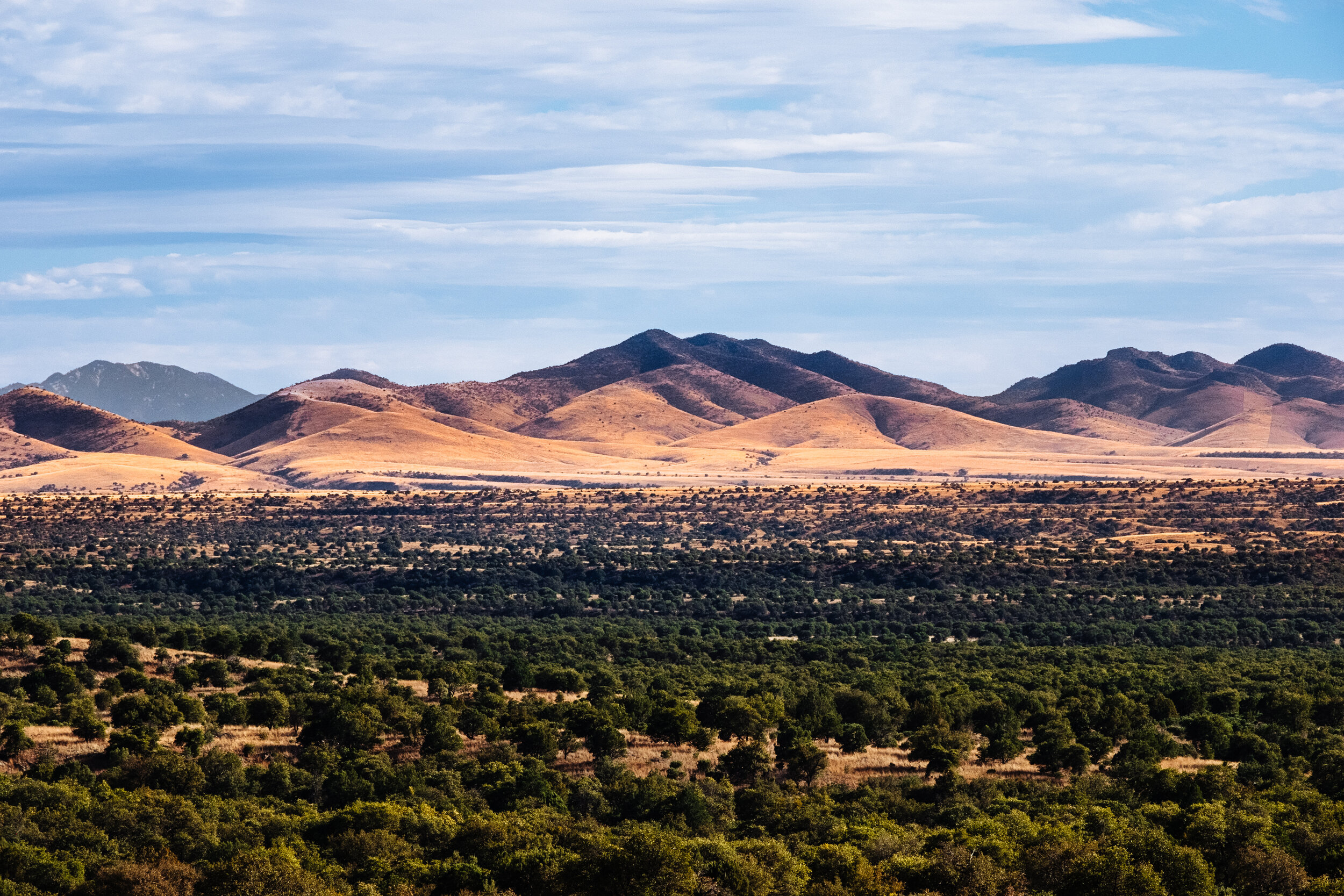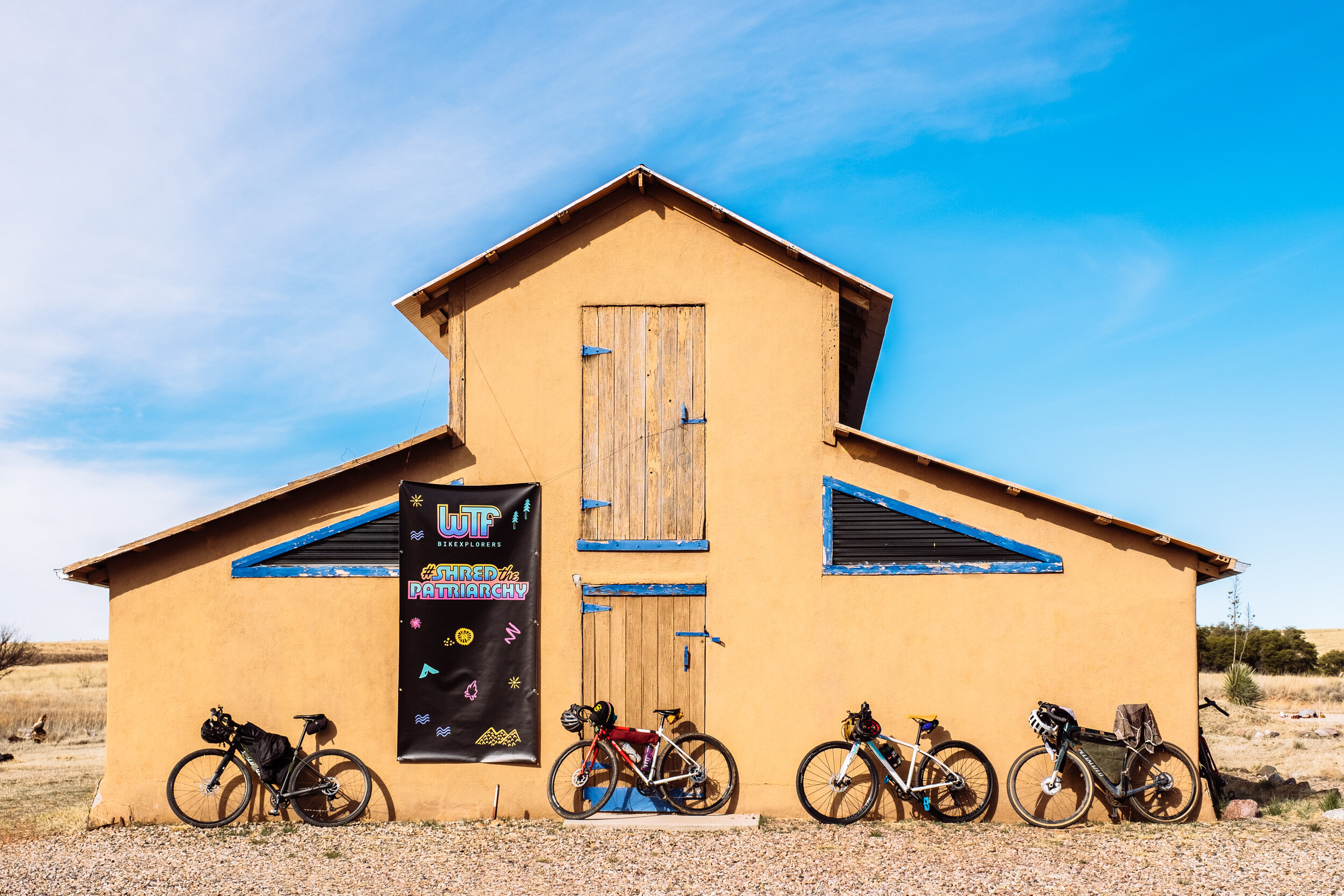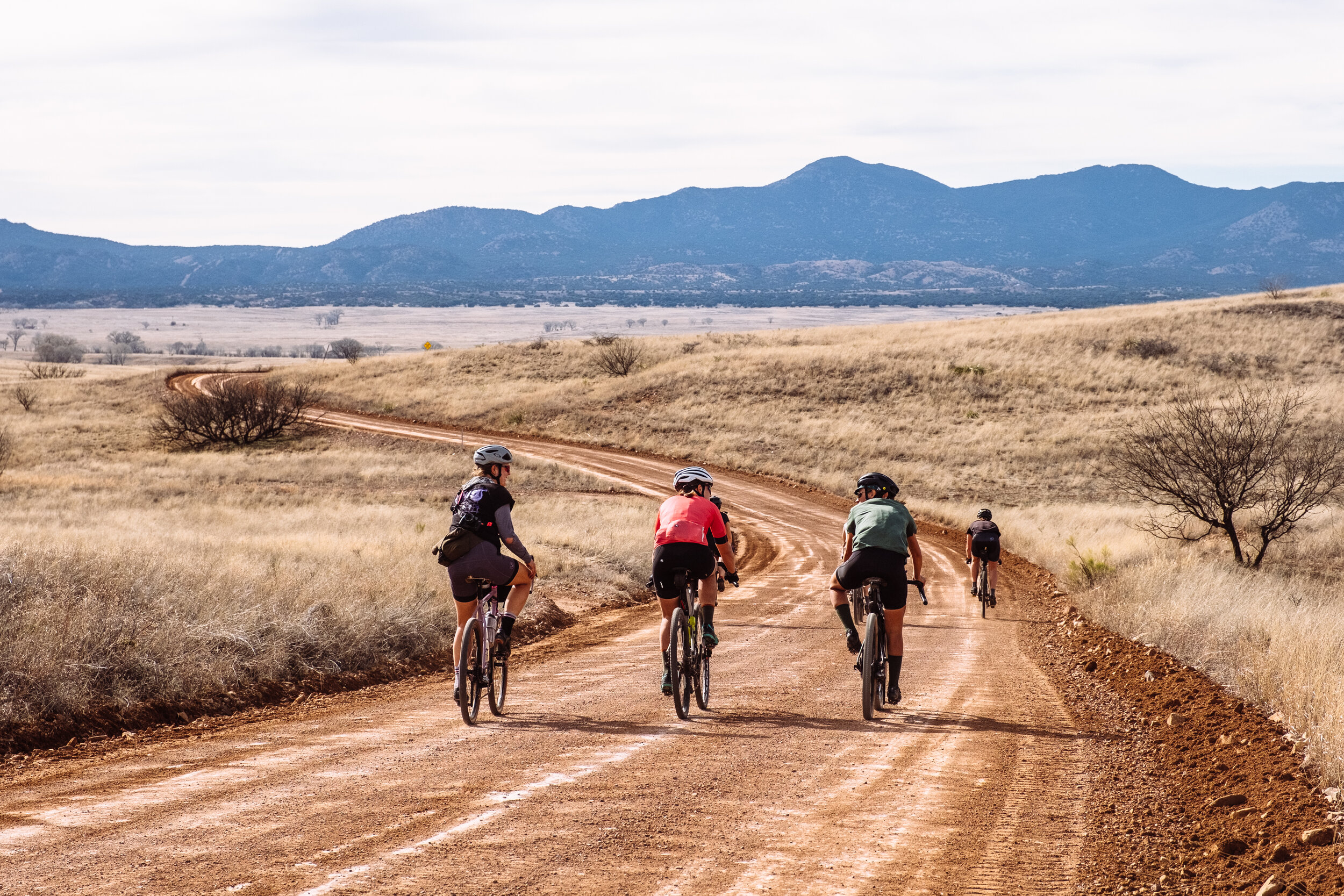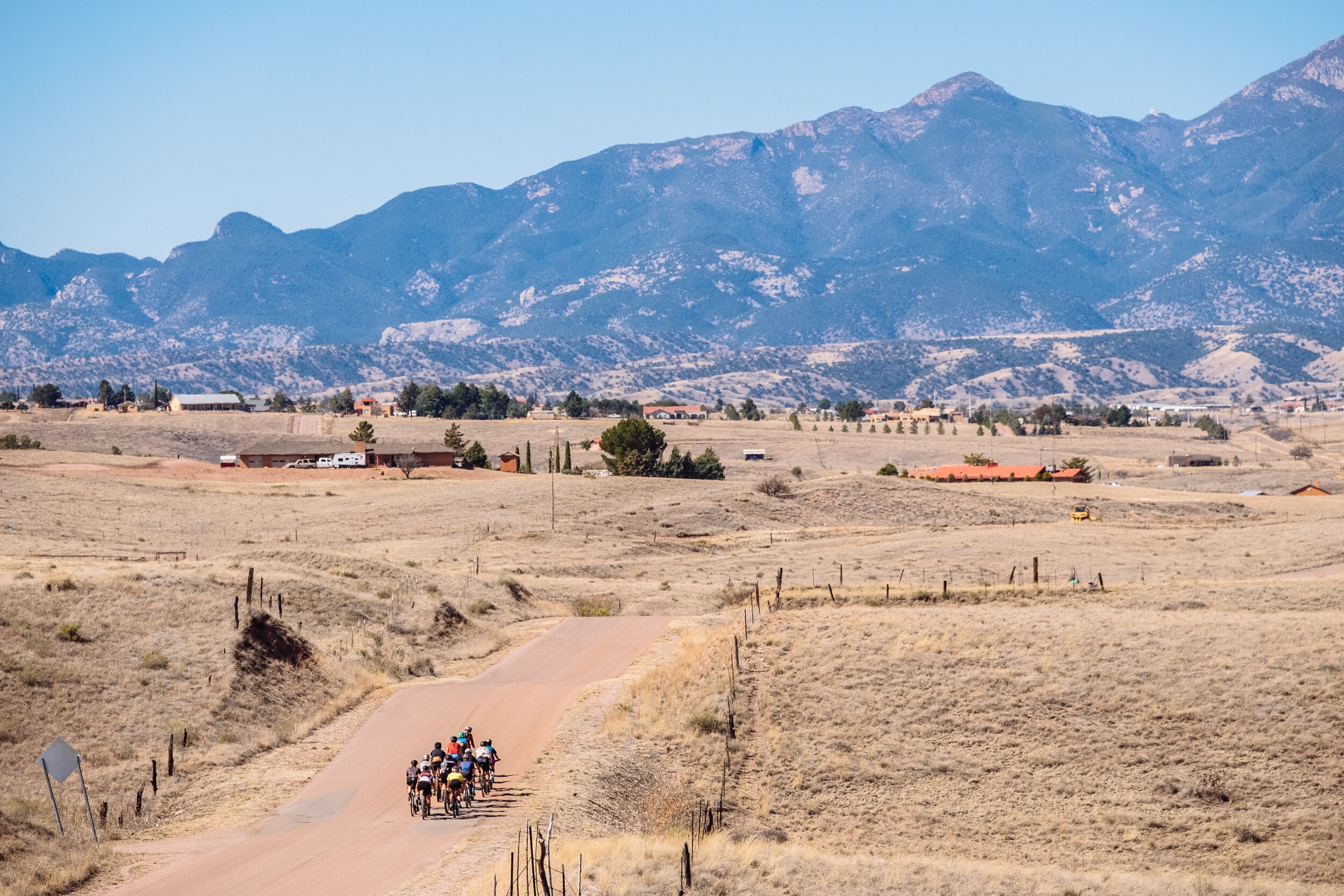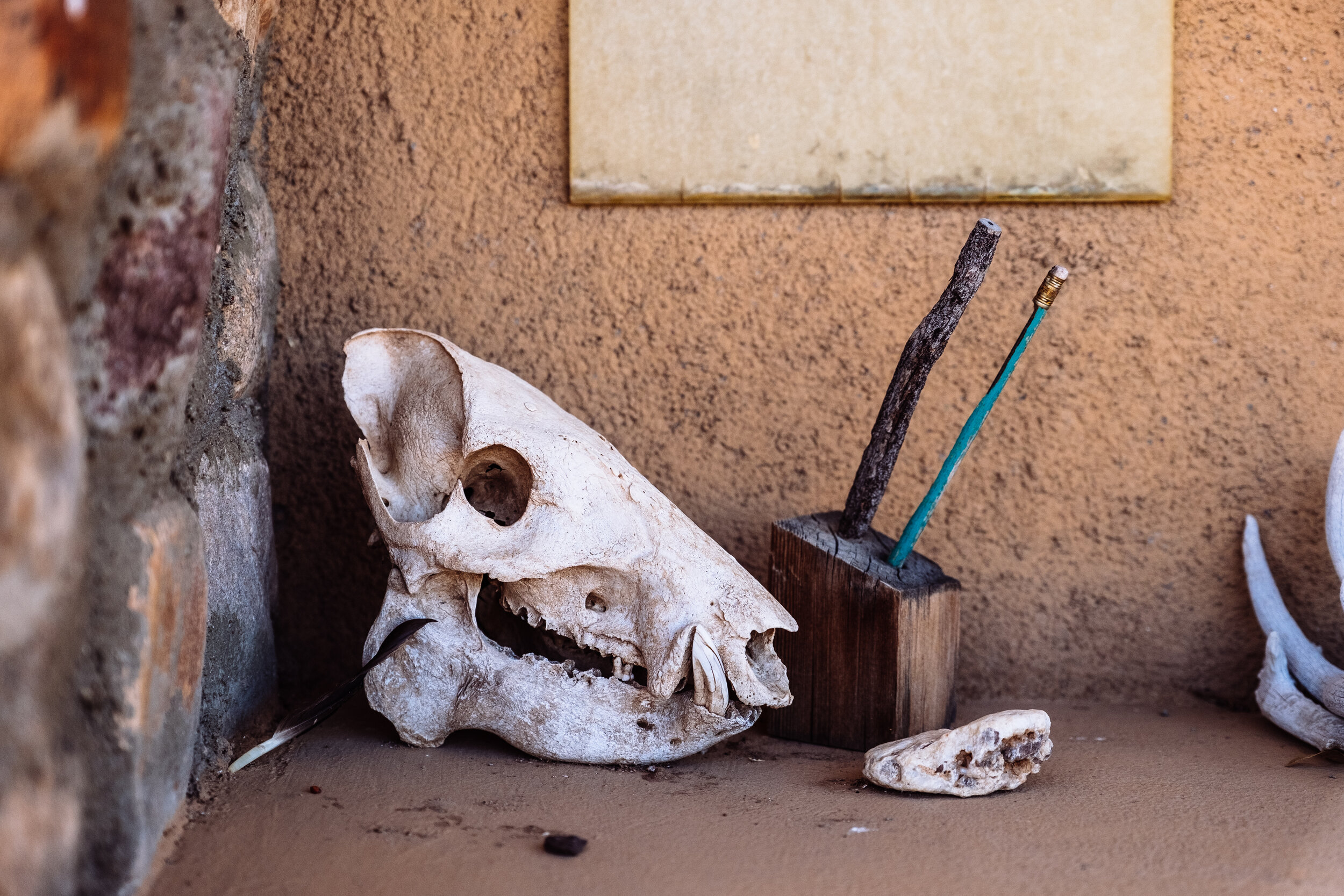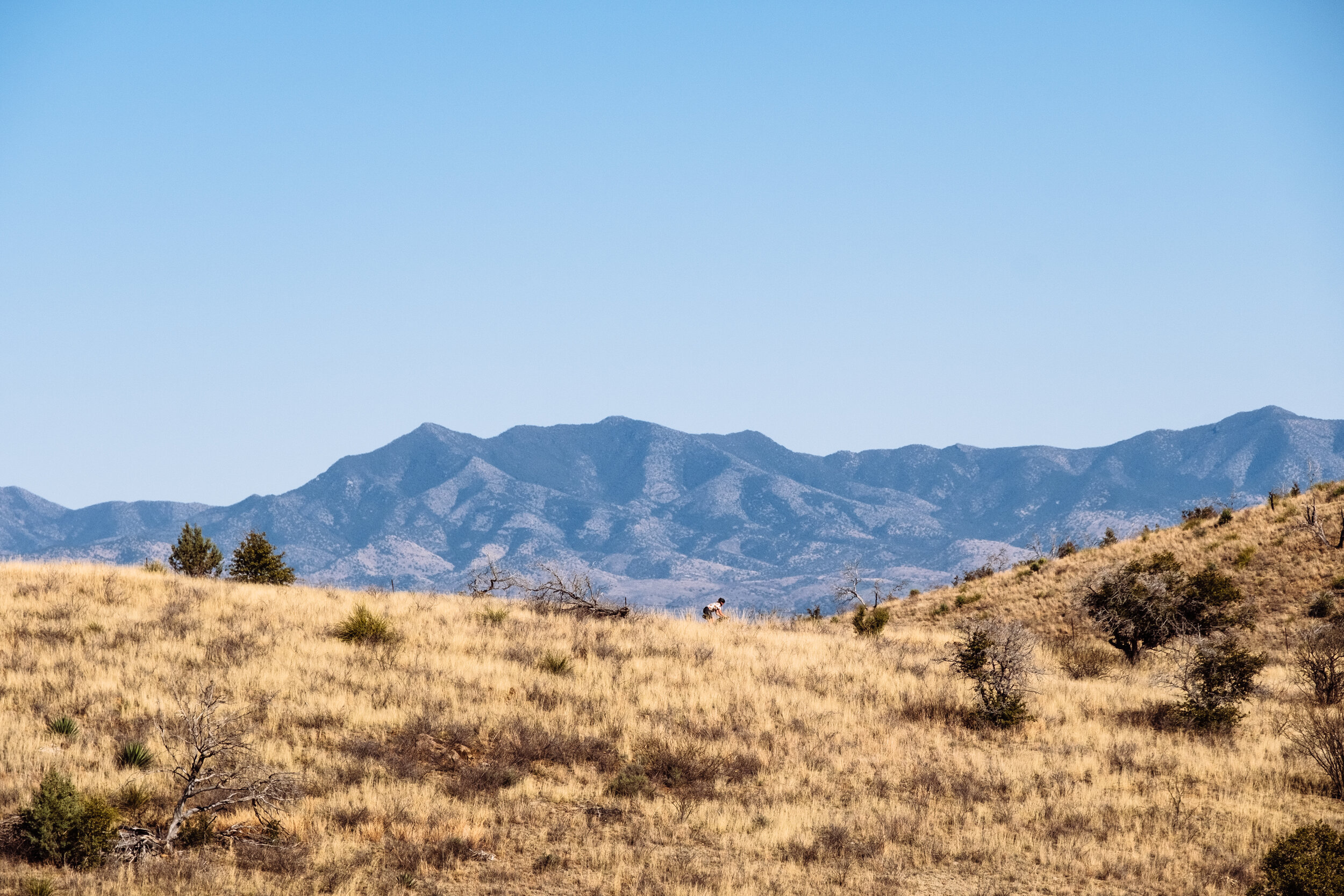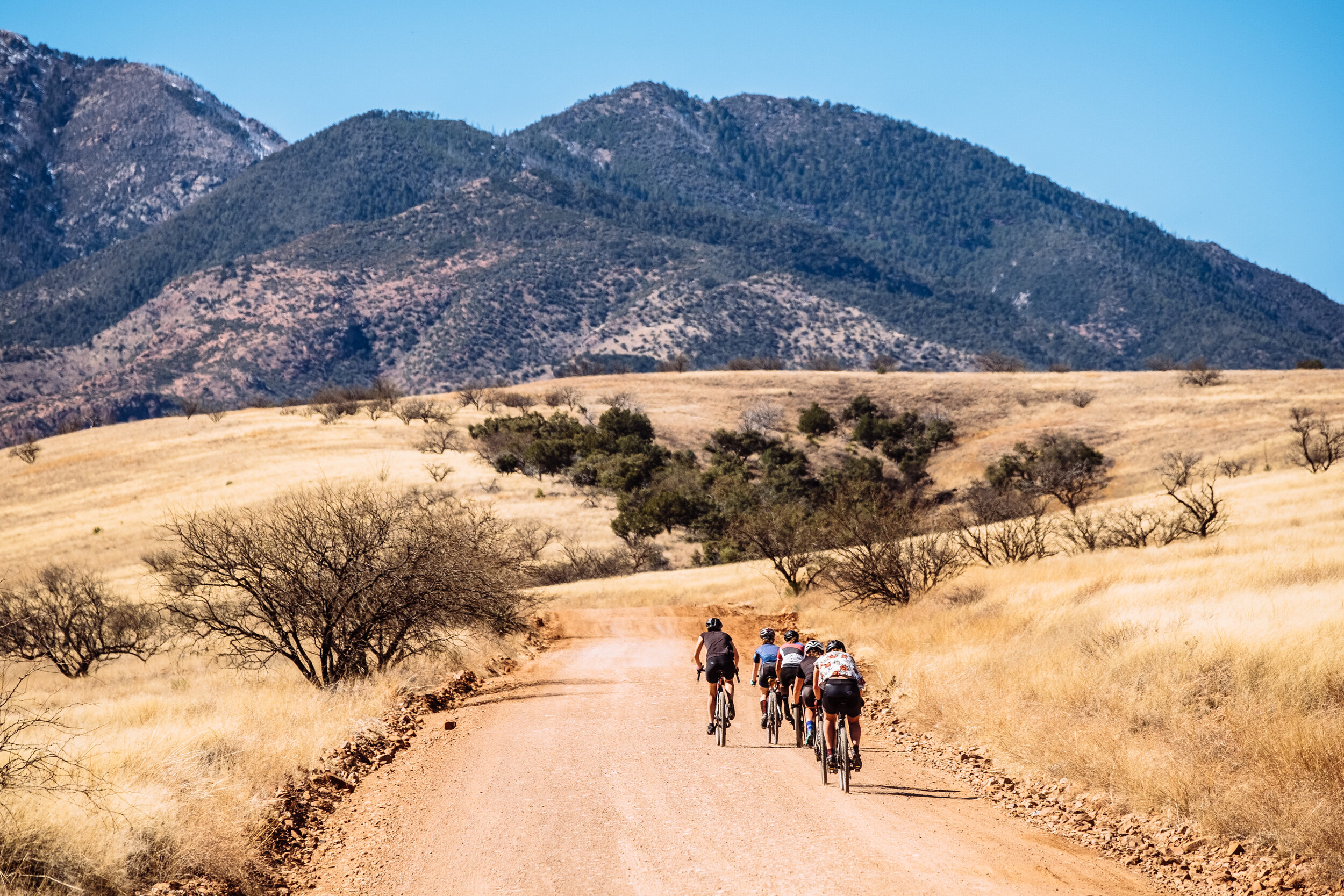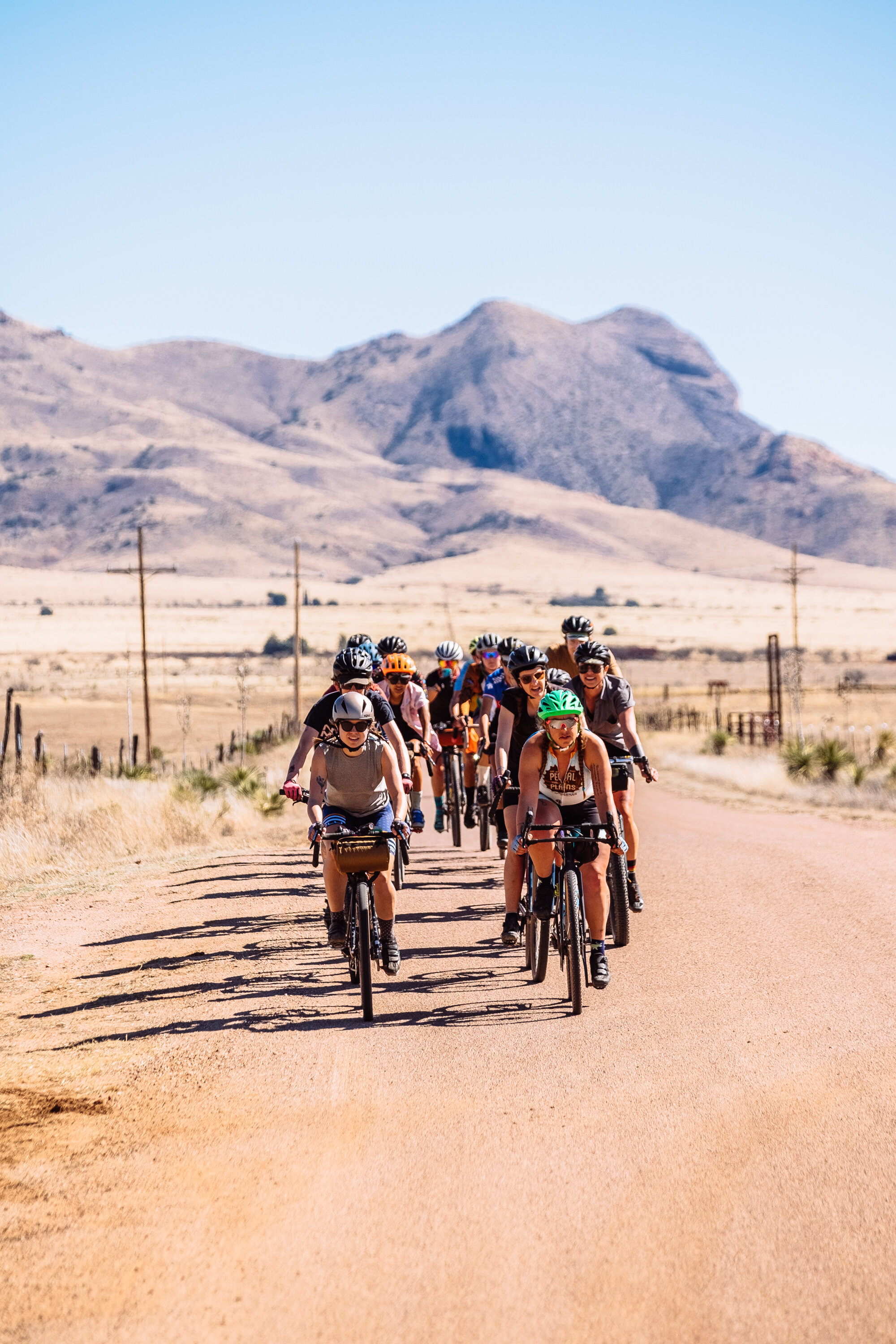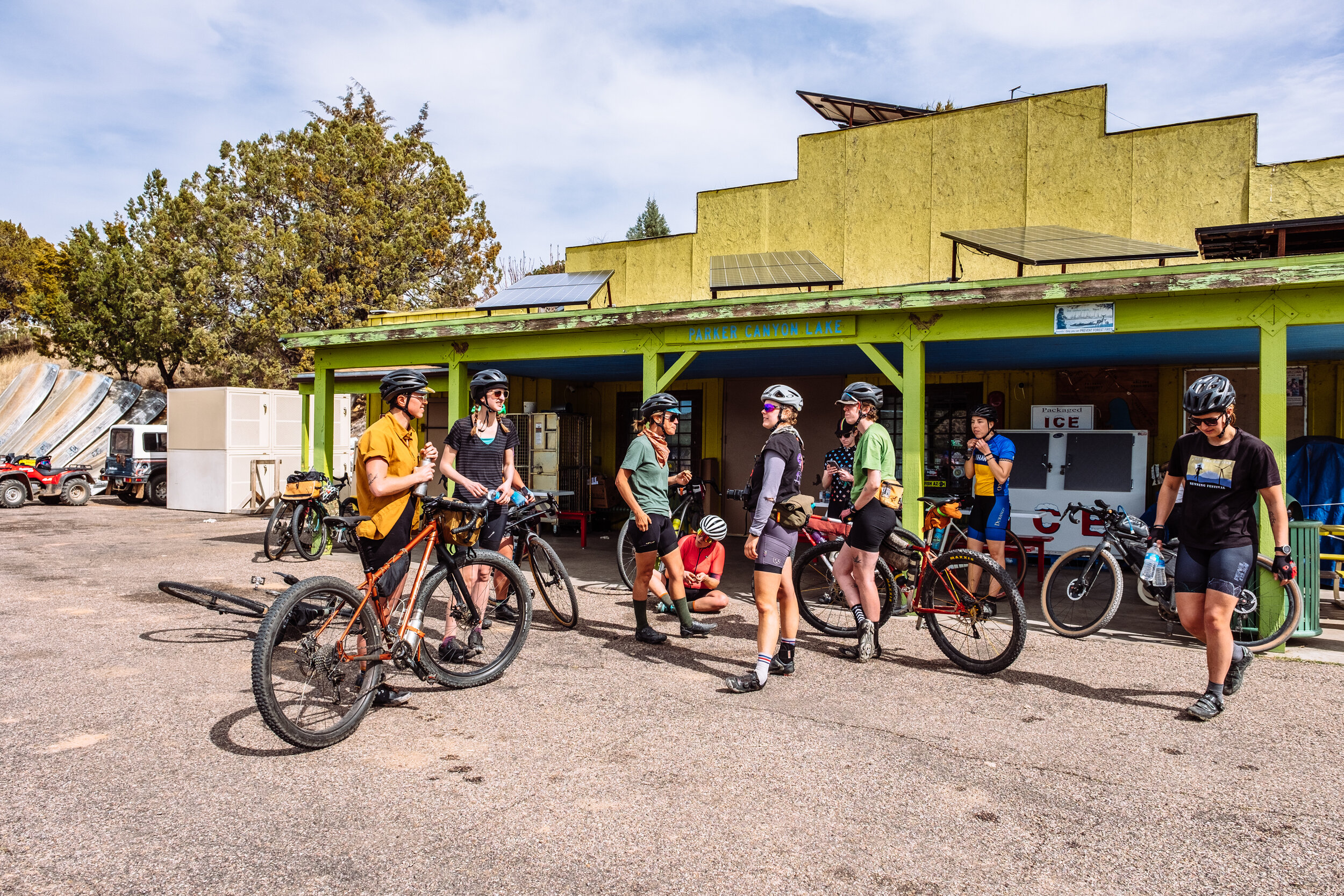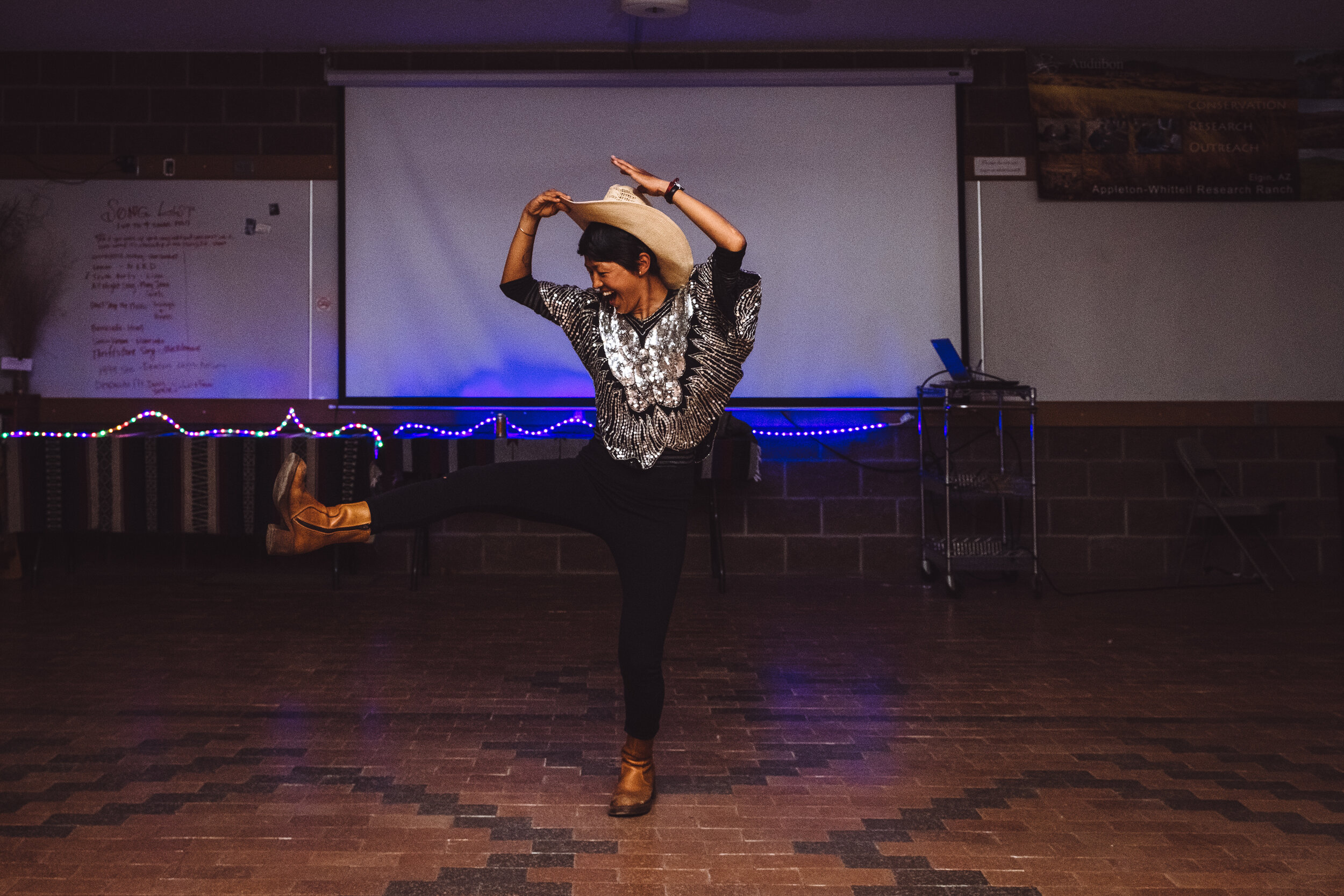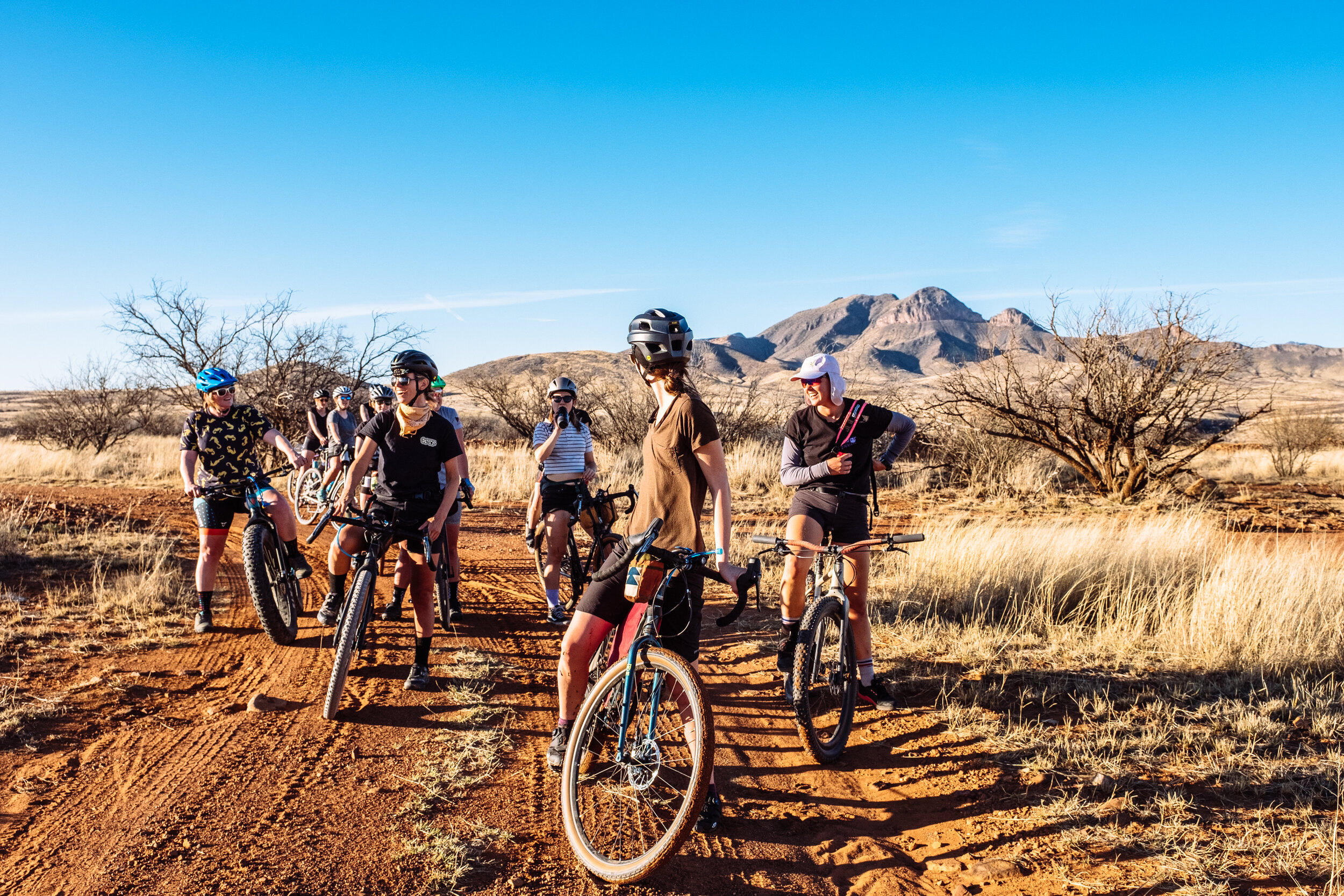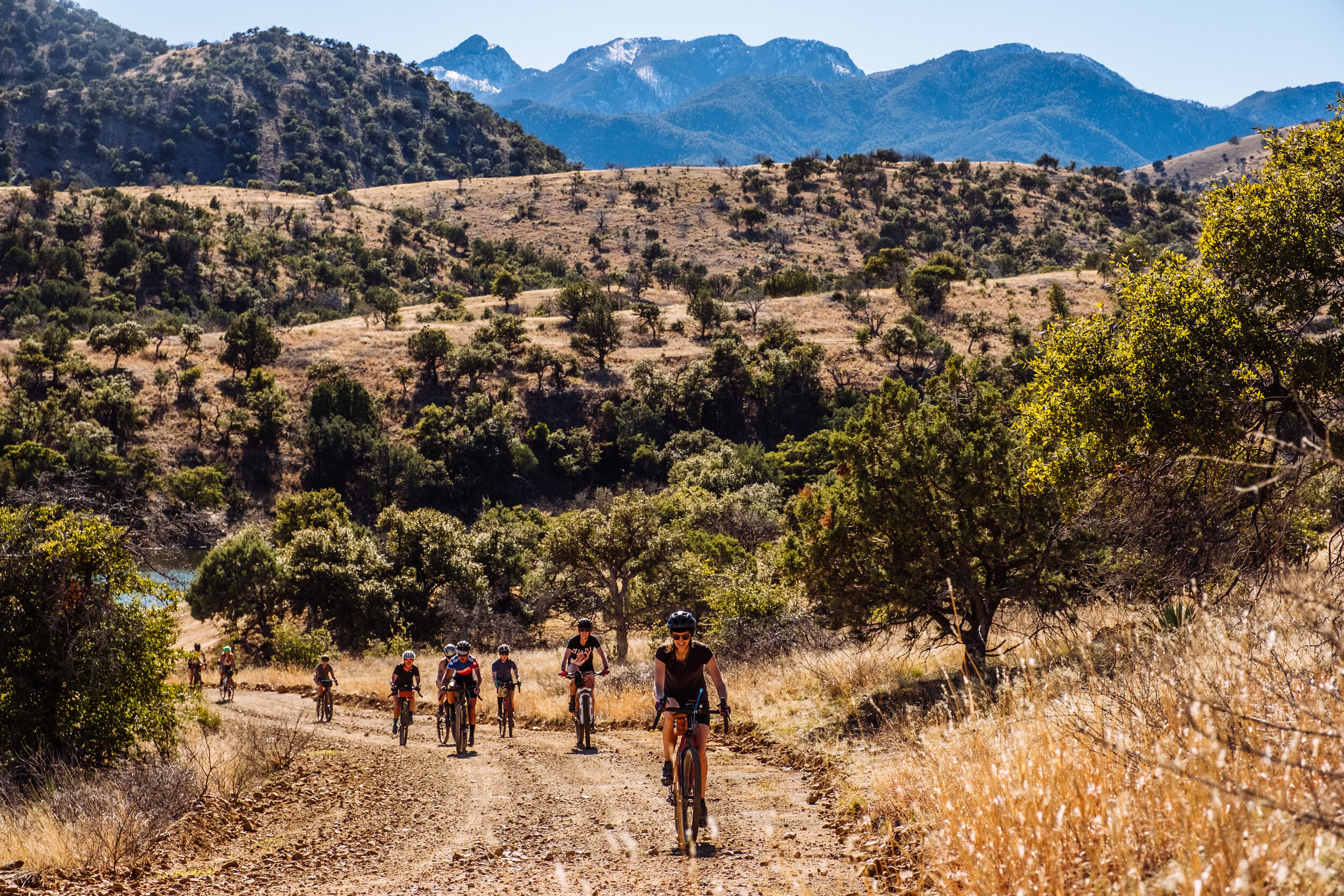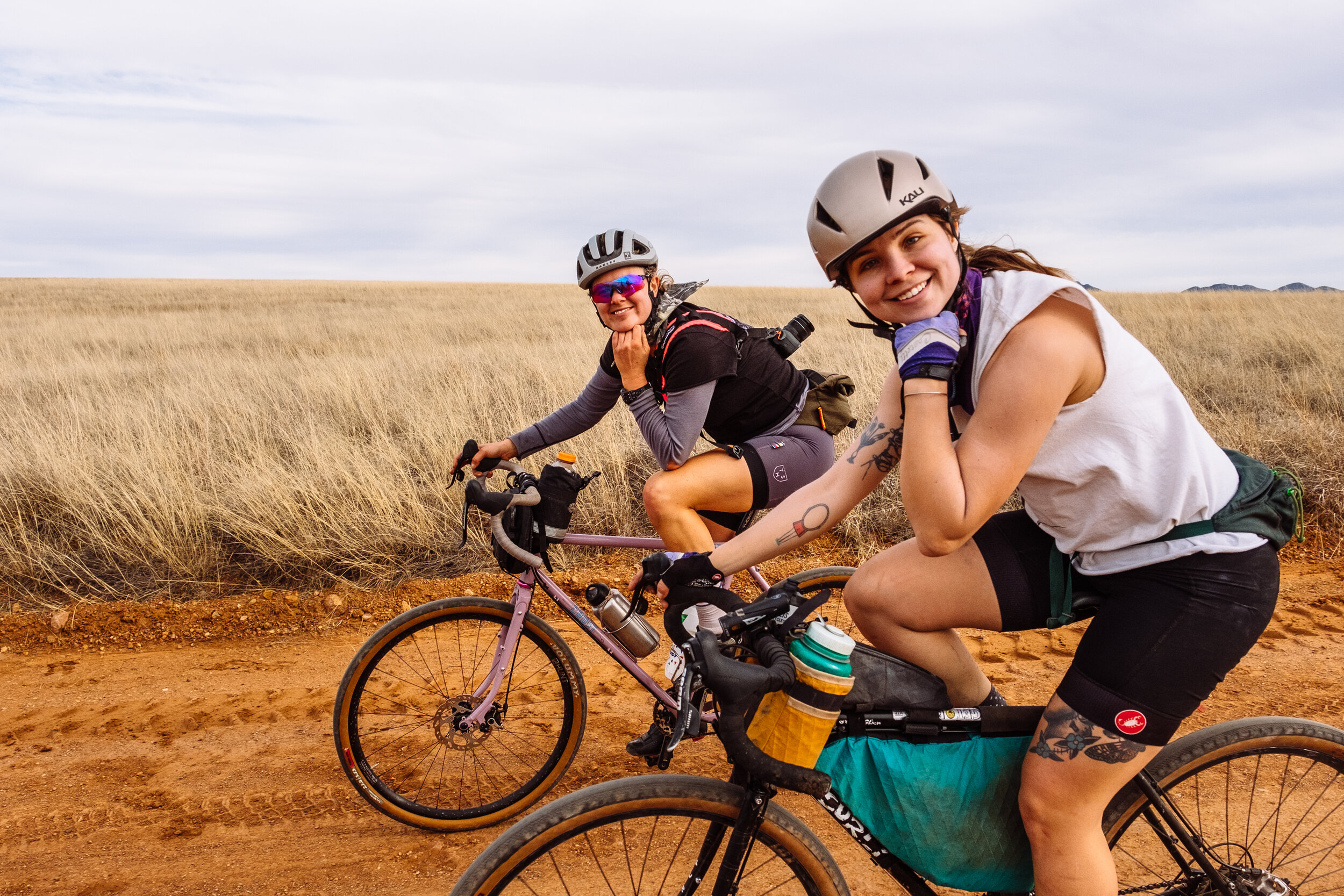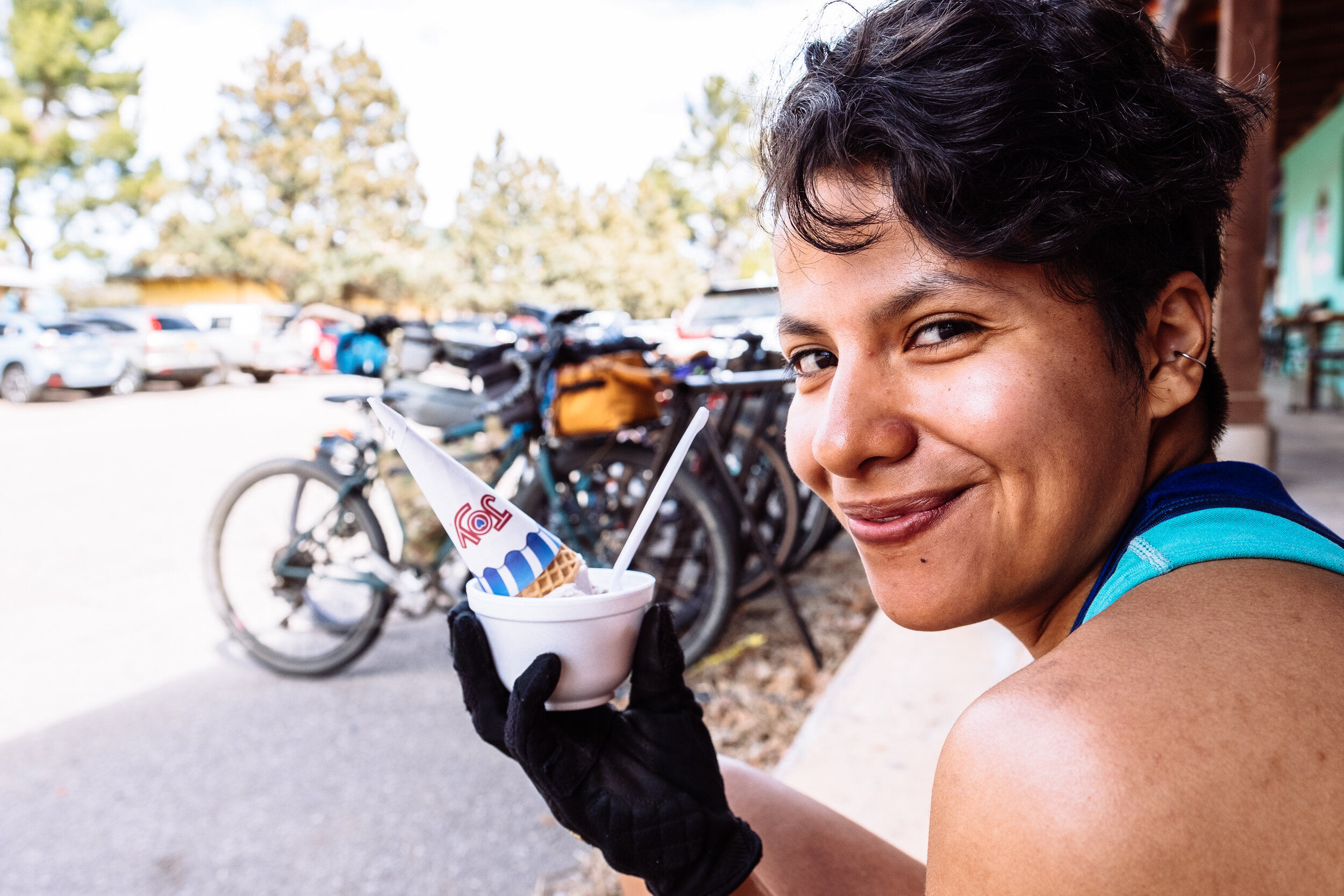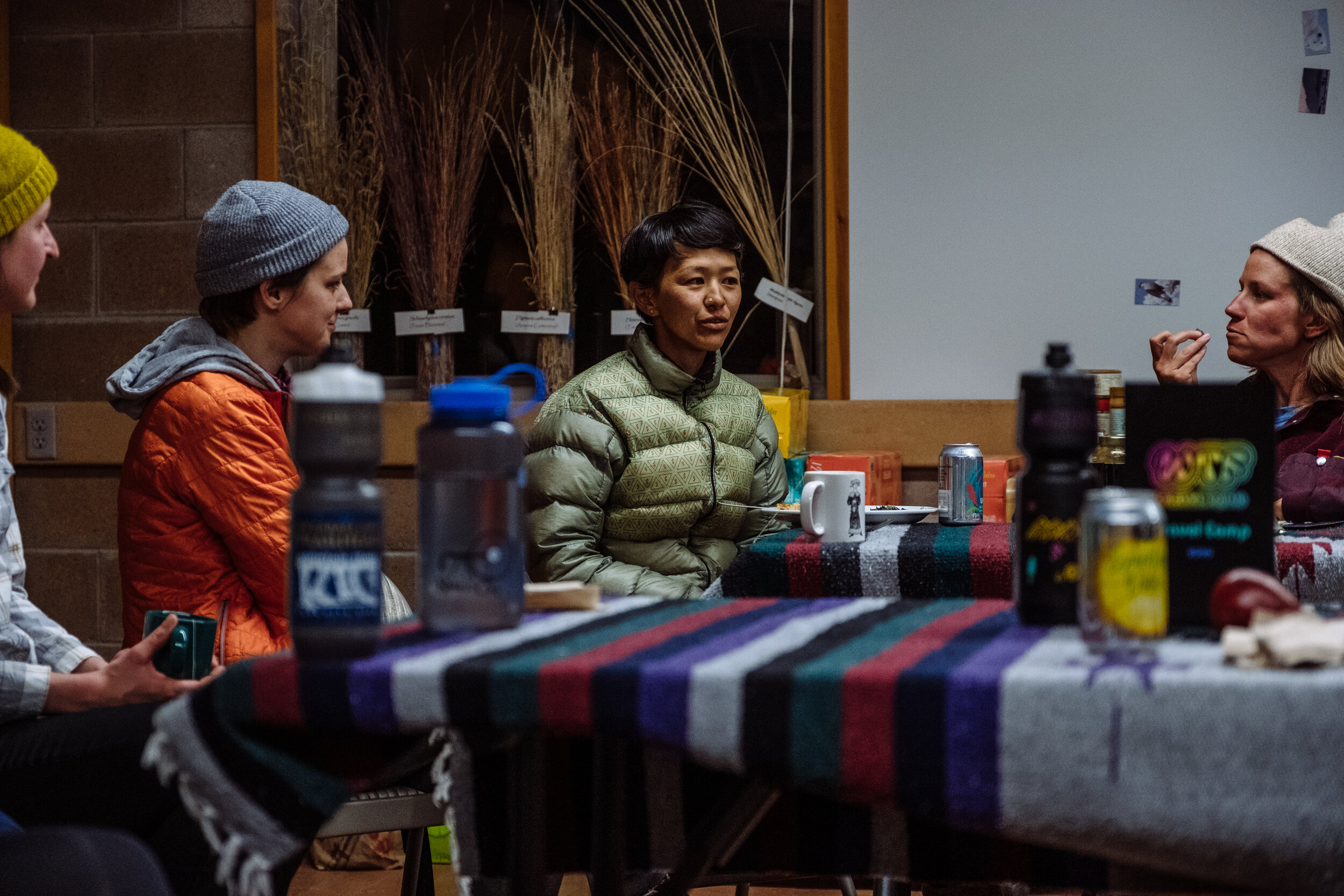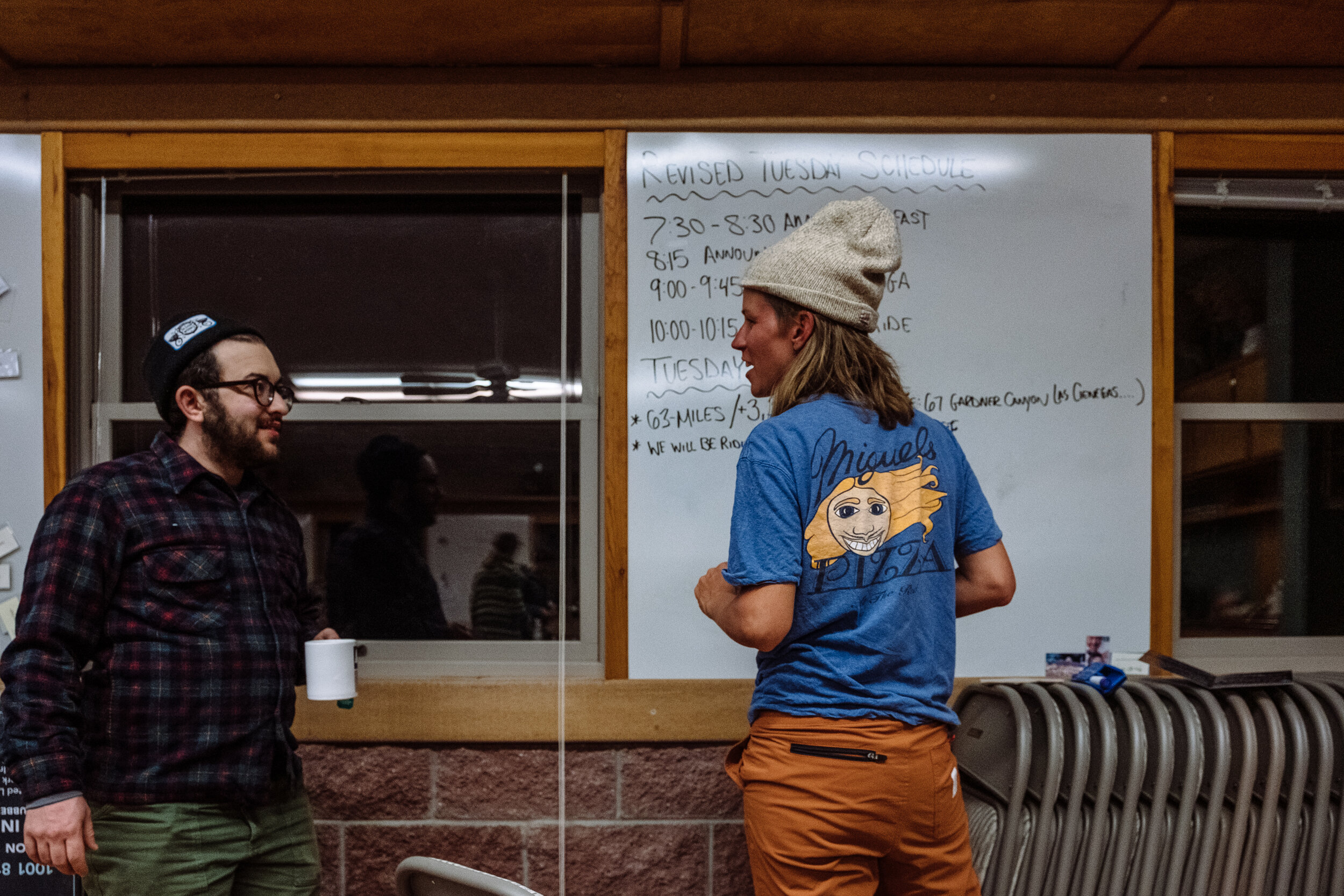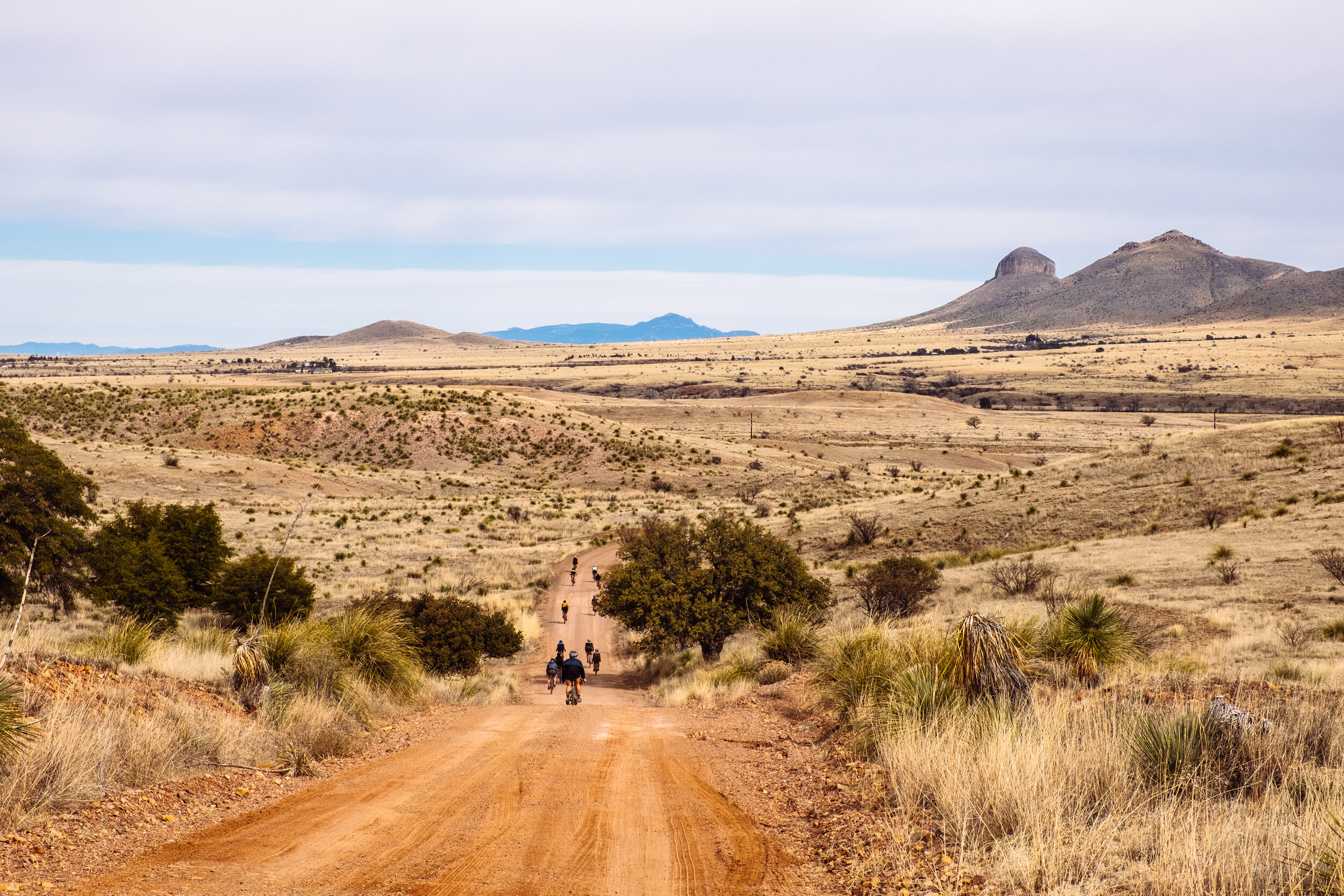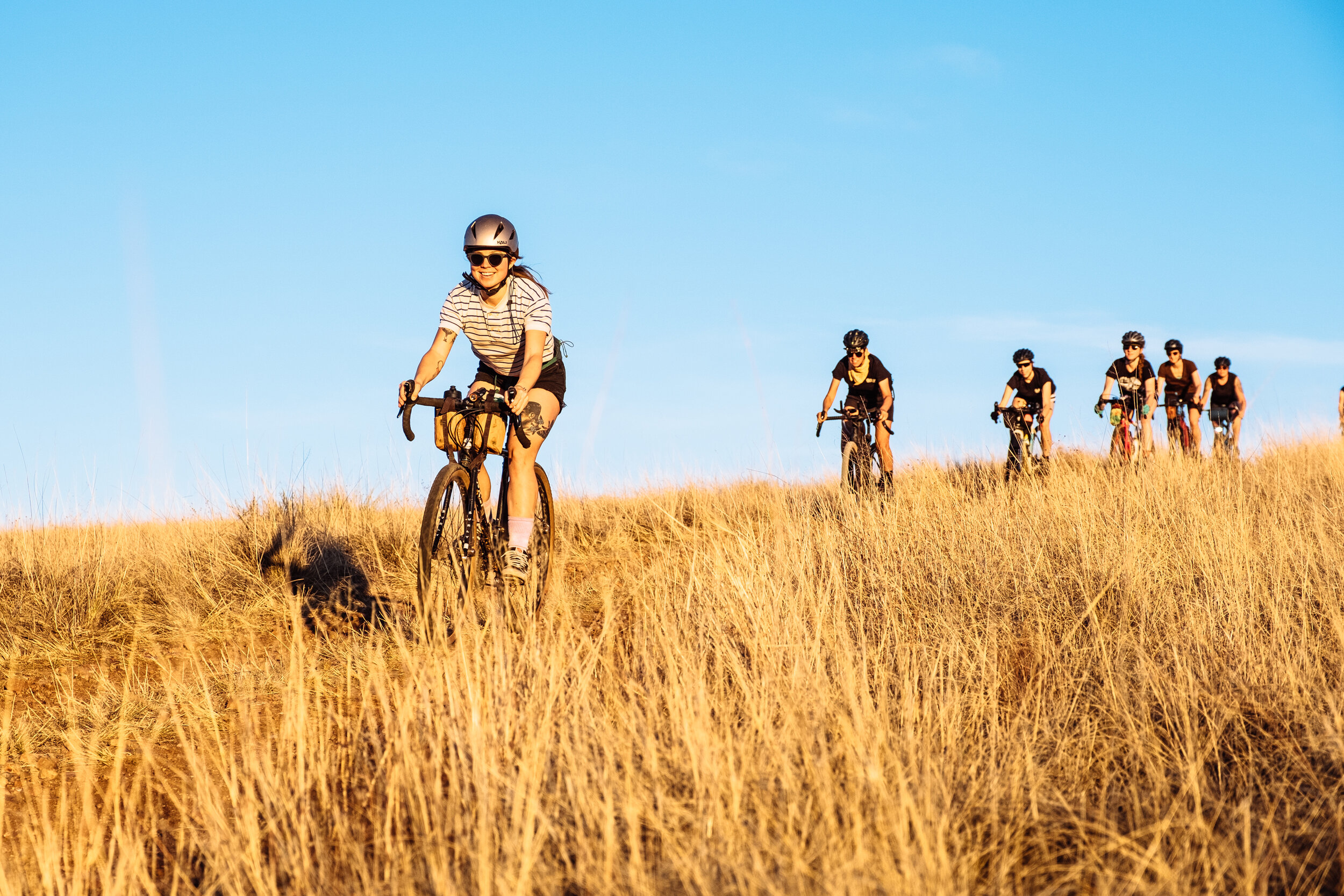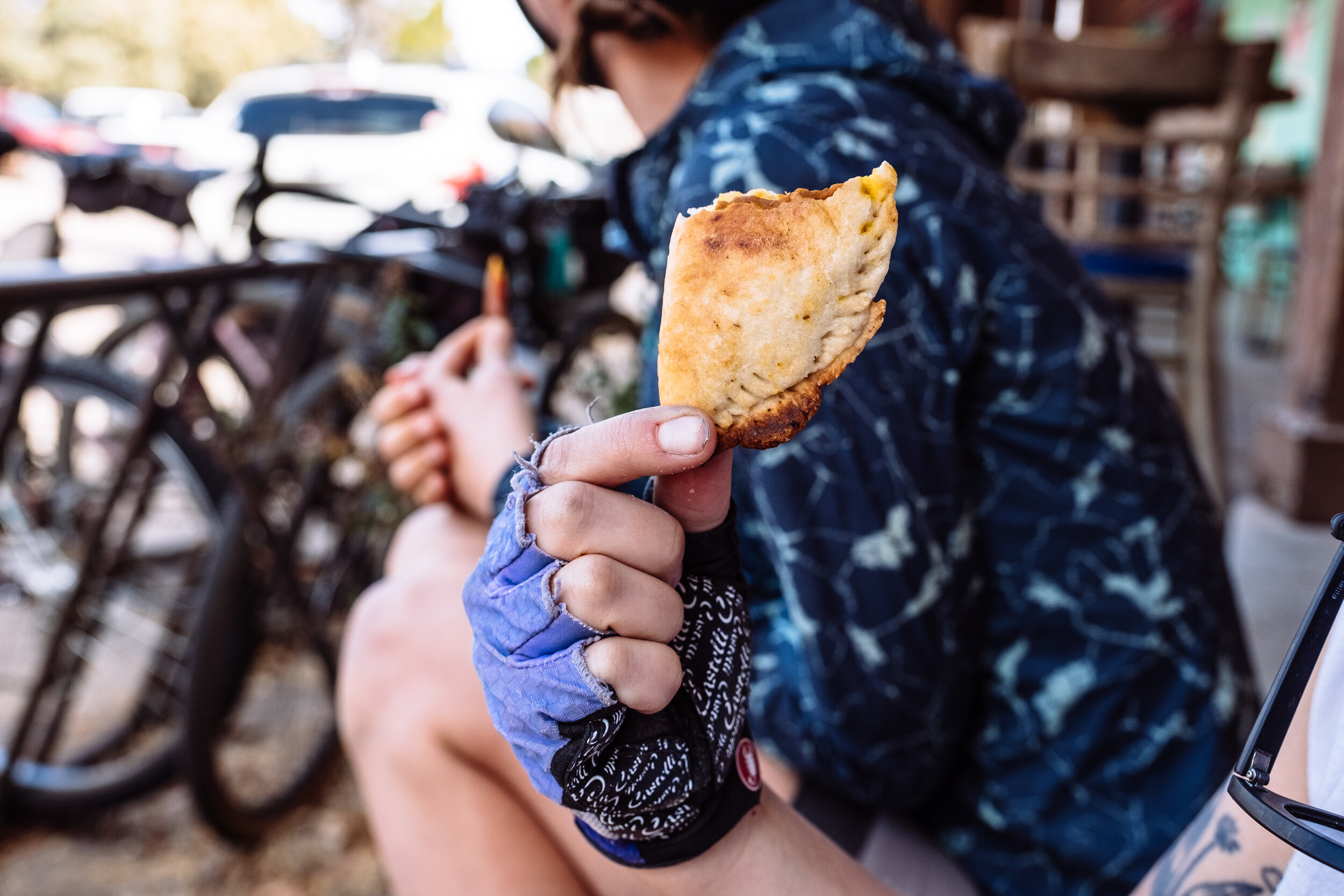Originally published on The Radavist on March 5, 2020
Photos by Gritchelle Fallesgon
The idea for a WTF Bikexplorers Gravel Program slowly sprouted in 2019 as I spun back into the gravel race scene. I saw the same deficit in diversity that bike-touring had (and still has) when five friends and I decided to organize the first WTF Bikexplorers Summit in 2018. Despite gravel racing as a rapidly growing sport within cycling, it is still very grassroots. It is not controlled by the UCI or any other sanctioning bodies and therefore it has the opportunity to mold and change to be the way we want it to be.
What is there to change? Currently, most gravel races are in such high demand they sell out in 30 seconds at 5 a.m. on a Saturday morning for a registration cost of $250. The registration is only ⅕ of the cost. Due to the general remoteness of most locations surrounded by gravel roads, there are additional costs for travel (sometimes flights and a rental car), food, and lodging. This tells me two things: One is that this current culture of racing is catering to the elite; the people who have the money, time, and support, to train, travel, and race. The second is that there is an abundant demand for more gravel events. These new events have the unique opportunity to structure themselves in any way the promoters see fit and that is an incredible opportunity for changing the paradigm.
Now that we understand the financial and time barriers involved for the privileged who can manage to get over them, imagine the barriers that exist for people who have systematic, economic, and societal barriers to jump over before even sitting down to try and register before the cut-off time. Gravel races are amazing experiences. We get to push ourselves harder and further than we physically thought was possible. We get to surprise ourselves and come out on the other side of the finish line stronger, more empowered and a better version of ourselves. It’s such a wonderful gift that everyone deserves to experience. Imagine a world where more people could experience this unique sense of achievement in mental and physical fortitude. Imagine the impact if we all participated in these events with purpose and intention to make our small cycling world a better and more inclusive space.
In 2019, I made an effort to ride with more people during gravel races who presumably identified as transgender, femme, non-binary, or women. While there was rarely only one other FTW to ride with at any given point, I still preferred riding in their company rather than riding in a sea of cis men. I felt a sense of comradery, despite the fact we were technically competing with one another. We were the minority and we were doing this race with the odds against us. This sense of comradery made me long for a stronger FTW community at these gravel races, one in which rather than competing against each other, we support, celebrate, and connect with one another to grow and develop as individuals and as a community.
At the 2019 WTF Bikexplorers Summit, I stuck a post-it note on the community board “Interested in racing gravel? Email Sarah Swallow'' and received around 50 emails from folks who expressed interest. With our decision to expand the WTF Bikexplorers reach, impact, and community by moving away from the summit format in 2020, I decided that my focus for WTF Bikexplorers in 2020 would be to create the foundational roots of a WTF Bikexplorers Gravel Program. I created a survey and received over 200 responses from people eager to sign on to a community with the following mission:
To support, celebrate and connect a community of strong non-binary, transgender, femme, and women cyclists who challenge themselves in gravel race events.
To increase representation and advocate for more gender and racial inclusivity and equality at gravel race events.
To be stewards of the WTF Bikexplorers Guiding Principles.
To inspire more non-binary, transgender, femme, and women cyclists to hold space at gravel race events.
We’re just getting started here, but I’ll tell you what we have going on in 2020. First and foremost we’re creating a community that supports, celebrates, and connects with each other-- specifically about riding and racing gravel. We’ve created a communication network through Google where all members, if they choose, can network with one another for training rides, questions, and coordinate carpooling and lodging logistics for gravel race events. Sharing the burden of planning and training makes it easier for everyone and more likely for them to participate. We’re calling this community the WTF Bikexplorers Gravel Squad and anyone who is interested in participating in gravel events and identifies as non-binary, transgender, femme, or women can be part of this Squad.
We will be showing up in force at the Mid-South, Dirty Kanza, SBT Gravel, Gravel Worlds, and Grinduro California; supporting races making inclusivity a priority and nudging the ones who could and should be doing better. We’ll be doing this by upholding the ethics of the WTF Bikexplorers Guiding Principles ourselves and sharing resources for others who would like to get involved.
To kick-start this program I decided to host a gravel camp in southern Arizona to test the power of this intentional community; to hash out some specific initiatives we would like to see in the future; and to select a team from the squad riders who will be ambassadors of and race for this mission.
Twenty-two folks met me down in southern Arizona on Sunday, February 16th for 5 days days of epic gravel rides through the Sonoran Desert. We split up into two different speed groups; “the Javelinas” and “the Pronghorns”, and tackled some of the toughest and most technical routes in the area. The rides presented various challenges each day for the groups to get through together; we got lost and had to re-route; we ran out of water and had to make friends with a local fisherman who shared his; we had mechanicals, crashed, and hiked our bikes up and down steep, loose, rocky hills; we learned how to draft in a pace-line and harness our power and speed by working together; and finally, we helped each other hop fences and enjoyed each sunset from the saddle of our bicycles. The fun didn’t stop there; there were group games led by Nam, a dance party, a spaghetti-western photoshoot, and a scorcher lap race equipped with cookie hand-ups. By the end of the week, we had forged a special and unbreakable bond that transformed the gravel events on the upcoming schedule as reunions of the space and community we fostered at camp.
Our basecamp was the peaceful and remote setting of the Appleton-Whittell Research Ranch on ancestral Tohono O’odham, Yoemi, and Chiricahua Apache lands currently called Elgin, Arizona. Our cooking, cleaning, yoga, and mechanical needs were met by Ron, Jordan, and Adam who gave us the space and time to focus on shredding the patriarchy.
We brainstormed at camp what initiatives gravel events could take to be more inclusive and equitable. There are a few races like Mid-South and the SBT Gravel either offering free registration or early registration to the FTW community which is a huge help and is drastically increasing their number of participants from these communities. Gravel Worlds gives free registration to those who financially do not have the means, and suggests a donation to a non-profit organization if you manage to secure the funds before the race. But how do we take this further than an invitation? How do we create safety and security at these events for the people who have not been traditionally welcomed?
In his We Got To Hang Out interview, Izzy Sederbaum, answers this question about safety and security by proposing that event organizers have some basic ground rules for participants to follow, in which everyone would be held accountable for upholding. The WTF Bikexplorers Guiding Principles is a great template of what these ground rules could look like. During camp, we discussed ways in which events could appeal to more people by offering an open gender category. One in which people who don’t identify as a man or woman could register and still compete for a podium. We also discussed the idea of having separate podiums for separate time categories, much like marathons do. Rather than compete against people in your gender, you compete against people in your time category that you qualify for prior to the event. In order to address economic barriers, some ideas were discussed to create a sliding scale entry fee based on the participant’s income bracket as well as offering a certain amount of participation grants. These are just a few initiatives we discussed. The gravel team will be working on creating specific action items and resources for gravel events to utilize, but while that is in the works it is important for us all to start thinking and talking along these lines.
We have an incredible team of ambassadors representing us this year on the WTF Bikexplorers Gravel Team: Carley Erickson, Natalia Cortes, Emily Waldren, Delaney Burkette, Hannah Dhonau, Effie Bourgin, and Jorja Creighton. They will be at Dirty Kanza, SBT Gravel, Gravel Worlds, and Grinduro California wearing a WTF Bikexplorers/Machines For Freedom collaborative kit and fostering community amongst non-binary, transgender, femme, and women participants. They will be sharing information about the WTF Bikexplorers Cycling Industry Pledge and our Guiding Principles to anyone who is eager to learn more about what we have going on. Members of the WTF Bikexplorers Gravel Squad will also be out at gravel events nationwide.
This year, our team is a reflection of where we are with gravel racing and the cycling industry as a whole. The reality is that I did not have a pool of non-binary, transgender, or women of color apply for the gravel team. There are still massive time, cultural, and financial barriers getting in the way for increased participation and WTF Bikexplorers can’t break those barriers down without the help of the entire cycling industry and cycling community. So, I am asking you to talk about these issues, organize inclusive events yourselves, and ask each other the following questions. How do we make gravel racing more inclusive and diverse? How do we make these spaces safe and secure for everyone? How do we make it more equitable to participate?
WTF Bikexplorers will be working on answering these questions this year as we refine this gravel program and our own systems, so that we can do better next year, and the next, and the year after that. Change is not going to happen in a year, but we have to start somewhere.
A special thanks goes out to the companies who have come on board to support the vision and the mission of the WTF Bikexplorers Gravel Program. Their support makes it possible for us to subsidize and equip our racers: Specialized Bicycles, Ride with GPS, Swift Industries, Machines for Freedom, Roval Components, and Revelate Designs.

